
What is the Most Common Punishment for a DUI
Typical DUI Penalties: What is the Most Common Punishment for a DUI What is the most common punishment for a DUI is a question many individuals face after an arrest for drunk driving. Understanding typical DUI penalties can help prepare for the legal process ahead, though actual outcomes depend on specific facts and applicable law. DUI punishments generally include a combination of administrative penalties (license-related consequences) and criminal penalties (court-imposed sanctions). The severity often escalates based on prior DUI convictions, blood alcohol concentration at the time of arrest, and whether the incident involved property damage or injuries. A licensed DUI attorney can explain how state laws and case-specific factors may influence potential penalties. This overview examines common DUI penalties, the legal framework that determines sentencing, and factors that may affect punishment severity. While penalties vary by jurisdiction, certain consequences appear consistently across drunk driving cases nationwide. Legal Process Overview: Common DUI Penalties and Sentencing Structure DUI penalties typically fall into several categories that courts may impose individually or in combination. Fines represent one of the most universal consequences, ranging from several hundred to several thousand dollars for first-time offenses, with amounts increasing substantially for repeat convictions. License suspension affects nearly […]

Is Jail Time Mandatory for 1st DUI?
Understanding DUI Penalties: Is Jail Time Mandatory for 1st DUI? Is jail time mandatory for 1st DUI arrests? This question concerns thousands of individuals facing their first impaired driving charge. The uncertainty surrounding potential jail time creates significant stress during an already difficult period. DUI sentencing laws vary substantially across jurisdictions. Some states mandate minimum jail sentences even for first offenses, while others permit judges to impose alternative penalties such as probation, community service, or alcohol education programs. First-time offenders may face jail time depending on state statutes and aggravating factors. This article explains how drunk driving sentencing works, what factors influence whether jail time is required, and how BAC levels and circumstances affect penalties. Understanding these legal considerations can help individuals evaluate their options and make informed decisions about their defense strategy. DUI Terms Explained: Mandatory Minimum Sentencing Laws Mandatory minimum sentencing refers to legally required penalties that judges must impose upon conviction. For DUI charges, these requirements vary significantly by jurisdiction and case specifics. Some states impose mandatory jail time for first-time DUI convictions, while others allow alternative sentencing. Some states require minimum jail sentences for standard first offenses, while others permit judges to allow alternative sentencing in […]

What is the Most Common Sentence for a First DUI
Legal Context: What is the Most Common Sentence for a First DUI What is the most common sentence for a first DUI? This question concerns individuals facing their first drunk driving charge. Understanding typical sentencing ranges can help defendants prepare for court proceedings and make informed decisions about their legal options. First-time DUI sentences generally combine multiple elements rather than one single penalty. Most jurisdictions structure sentencing around probation supervision, financial penalties, driver education requirements, and restricted driving privileges. While jail time is statutorily possible for first offenses, many states reserve incarceration for cases involving elevated BAC levels, accidents, or aggravating circumstances. Sentencing outcomes depend on the specific facts of each case, including blood alcohol concentration at arrest, prior driving record, and whether anyone was injured. A licensed DUI attorney can explain how sentencing guidelines apply to individual circumstances and what factors may influence judicial discretion. DUI Terms Explained: Standard First-Time Sentencing Components First DUI sentences typically include several mandatory components that courts combine based on state statutes. Probation periods commonly range from one to three years, during which defendants must comply with court-ordered conditions. Violation of probation terms can result in additional penalties or jail time. Fines and court […]

Do Most People Go to Jail for DUI | Understanding Sentencing Factors and Penalty Variations
Sentencing Factors Explained: Do Most People Go to Jail for DUI Do most people go to jail for DUI is a question that cannot be answered with simple statistics because sentencing outcomes depend on numerous case-specific factors and jurisdictional variations. Concern about potential incarceration following drunk driving charges is understandable, but penalties range dramatically based on offense level, jurisdiction, individual circumstances, and prior criminal record. This article provides educational information about sentencing factors affecting DWI jail time, penalty types beyond incarceration, jurisdictional differences in impaired driving penalties, and considerations judges evaluate when imposing sentences. You’ll learn about statutory penalty ranges, alternative sentencing options, aggravating circumstances triggering enhanced penalties, first offense versus repeat offender distinctions, and how local court practices affect outcomes. Understanding these components helps you recognize the complexity of sentencing determinations rather than relying on generalized predictions. Actual sentencing depends on your specific facts, applicable state laws, local prosecutorial policies, and judicial discretion within statutory frameworks. 1800DUILaws.com serves as an educational resource to help you understand drunk driving sentencing factors and locate licensed attorneys who can evaluate your individual circumstances and explain jurisdiction-specific penalty considerations. Understanding DUI Sentencing Components DUI penalties include multiple components beyond incarceration. Understanding sentencing complexity […]

How to Fight a DUI Without a Lawyer | Legal Process and Self-Representation Considerations
Navigating DUI Charges: How to Fight a DUI Without a Lawyer Understanding how to fight a DUI without a lawyer begins with recognizing the legal framework governing impaired driving charges. DUI proceedings typically involve both criminal court matters and administrative license suspension hearings. Self-representation requires familiarity with court procedures, evidence rules, and statutory defenses available under state law. The accused must file timely responses, attend mandatory hearings, and present evidence according to established legal standards. While defendants have the constitutional right to represent themselves, drunk driving cases involve technical elements including BAC testing protocols, field sobriety test administration, and probable cause requirements. Legal outcomes depend on the specific facts of each case, the quality of evidence, and applicable jurisdiction-specific statutes. DUI Terms Explained: Understanding Court Procedures and Requirements Self-representation in DUI cases requires understanding several key procedural elements. The arraignment represents the initial court appearance where formal charges are presented and a plea is entered. Pre-trial motions allow challenges to evidence admissibility, such as breathalyzer calibration records or traffic stop legality. Discovery is the process of obtaining prosecution evidence, including police reports, video footage, and chemical test results. Administrative license suspension hearings occur separately from criminal proceedings and must be […]

How do I apologize to my judge for a DUI | Court Communication Guidelines
Court Communication Explained: How Do I Apologize to My Judge for a DUI When facing drunk driving charges, understanding how to communicate with the court is essential. Many individuals wonder how do I apologize to my judge for a DUI while navigating the criminal justice system. The answer involves understanding proper courtroom procedures, working with legal counsel, and recognizing when statements to the court may occur. DUI proceedings follow formal legal protocols. Direct communication between defendants and judges typically happens during specific phases of the case, most commonly at sentencing. The court process prioritizes legal arguments presented by attorneys, though defendants may have opportunities to address the judge during allocution. Your approach to court communication can vary based on state law and whether you have legal representation. A licensed DUI attorney can explain how the law may apply to your situation and advise on appropriate courtroom conduct. Legal Process Overview: Understanding Court Communication During DUI Cases The question of how do I apologize to my judge for a DUI relates to the broader issue of allocution rights. During sentencing hearings, defendants generally have the right to make statements before the judge imposes penalties. This right exists in both misdemeanor and […]

What to Say If You Get Pulled Over for DUI | Legal Communication Guidelines
Legal Considerations: What to Say If You Get Pulled Over for DUI What to say if you get pulled over for DUI begins with recognizing that traffic stops create legally complex situations where your words become evidence. Officers conducting DUI investigations document every statement, behavior, and interaction. These observations form the foundation of criminal charges and may be used in court proceedings. During a traffic stop, law enforcement evaluates driver behavior for signs of impairment. Physical coordination, speech patterns, and responses to questions contribute to probable cause determinations. Understanding which communications are legally required versus optional helps drivers navigate these encounters while protecting constitutional rights. The Fifth Amendment protects against self-incrimination, meaning drivers can decline to answer questions that might suggest impaired driving. However, most jurisdictions require drivers to provide identification documents and comply with lawful commands. This distinction between mandatory compliance and voluntary statements can significantly impact case outcomes, which depend on specific facts and applicable state law. Constitutional Rights During DUI Traffic Stops Drivers retain fundamental constitutional protections during traffic stops, including the right to remain silent and the right to legal counsel. While you must identify yourself and provide required documentation, you may politely decline to answer […]

What Not to Say in Court | Essential Guidance for DUI Defendants
Legal Process Overview: What Not to Say in Court What not to say in court begins with recognizing that every statement made during DUI proceedings becomes documented evidence. Individuals facing impaired driving charges often experience stress and uncertainty about proper courtroom behavior. This guide explains communication protocols, common mistakes defendants make, and how inappropriate statements can affect legal outcomes. Understanding DWI courtroom procedures helps defendants avoid damaging their defense. BAC violation cases require careful attention to what you communicate to judges, prosecutors, and court personnel. Legal standards demand respectful, measured responses that align with due process requirements. DUI Terms Explained: Statements That Compromise Your Defense Certain communications in court can undermine legal strategies regardless of case circumstances. Admissions of guilt before consulting counsel represent critical errors—statements like “I knew I shouldn’t have driven” create prosecutorial evidence. Contradicting previous testimony damages credibility, as inconsistent accounts suggest dishonesty rather than confusion. Emotional outbursts or disrespectful language toward court officials can result in contempt charges and negatively influence judicial perception. Discussing case details with unauthorized individuals in courtrooms poses risks, as conversations may be overheard by prosecutors or witnesses. Many DUI defendants make inadvertent statements that complicate their defense. Volunteering information beyond what […]

Has Anyone Won a Case Defending Themselves in DUI Court?
Understanding Self-Representation: Has Anyone Won a Case Defending Themselves Has anyone won a case defending themselves against DUI charges? This question reflects the stress many accused drivers experience when considering their legal options. Yes, some individuals have successfully defended themselves in drunk driving cases, though outcomes vary based on case-specific circumstances. The legal system permits self-representation—known as appearing “pro se”—but impaired driving cases involve complex evidentiary rules, scientific testimony about BAC testing, and procedural requirements that challenge even experienced attorneys. Most successful self-defense cases involve specific circumstances: clear procedural violations by law enforcement, obvious testing errors, or situations where prosecutors recognize fundamental case weaknesses. Understanding what self-representation entails, the challenges it presents, and why most defendants choose legal counsel helps accused drivers make informed decisions about their defense strategy. The outcome of any DWI case depends on the specific facts, applicable state law, and quality of evidence presented. Legal Process Overview: Self-Representation in DUI Cases Defending yourself in a drunk driving case requires navigating multiple legal phases. The arraignment involves entering a plea and understanding formal charges. Pre-trial proceedings include discovery requests, motion practice, and potentially challenging BAC test results or field sobriety test administration. Many jurisdictions require specific legal […]
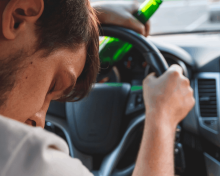
Can I Defend Myself in a DUI Case | Understanding Self-Representation Rights and Realities
Self-Representation Rights: Can I Defend Myself in a DUI Case Can I defend myself in a DUI case is a question that touches on both constitutional rights and practical legal realities facing accused individuals. While self-representation is legally permitted under the Sixth Amendment, it requires navigating complex court procedures, evidentiary rules, and technical legal requirements. This article provides educational information about self-representation rights in DWI cases, court procedural expectations, evidentiary standards, constitutional protections, and practical considerations when evaluating whether to represent yourself in drunk driving proceedings. You’ll learn about your right to self-representation, procedural requirements courts impose on all defendants regardless of representation status, discovery and motion practice procedures, evidentiary rules governing impaired driving proceedings, and factors to consider when making representation decisions. Understanding these elements helps you realistically assess what self-representation involves. Whether you choose self-representation or legal counsel depends on case complexity, your legal knowledge, available time for preparation, and potential consequences. 1800DUILaws.com serves as an educational resource to help you understand your charges and locate licensed attorneys who can discuss your specific circumstances and representation options. What Self-Represented Defendants Must Navigate Criminal court follows strict procedural rules applying equally to all defendants. Self-represented defendants must meet identical […]

What Are the Odds of a DUI Being Dismissed? | Understanding Your Legal Options
Legal Process Overview: What Are the Odds of a DUI Being Dismissed When facing drunk driving charges, many individuals wonder what are the odds of a DUI being dismissed. While specific dismissal rates vary significantly by jurisdiction and individual circumstances, understanding the factors that influence case outcomes can help you make informed decisions. According to legal data, DUI cases may be resolved in various ways depending on evidence quality, procedural compliance, and applicable law. What are the odds of a DUI being dismissed depends on multiple factors unique to each case. A DUI charge does not automatically result in a conviction; legal standards require prosecutors to prove their case beyond a reasonable doubt. The outcome of any impaired driving case depends on the specific facts, the evidence collected, and how the law applies to your situation. This article explains the legal elements that may influence DUI case resolution, including testing procedures, constitutional protections, and defense considerations. Understanding these factors can help you evaluate your circumstances and determine whether consulting with a licensed DUI attorney may be appropriate for your situation. Every drunk driving case is different, and outcomes vary based on jurisdiction-specific laws and individual evidence. DUI Terms Explained: Factors […]
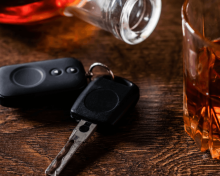
Can a DUI Be Dropped? | Understanding Your Legal Options
Legal Options Explained: Can a DUI Be Dropped When facing drunk driving charges, many individuals wonder: can a DUI be dropped? While no attorney can guarantee case dismissal, DUI charges may be reduced or dismissed based on specific factors including evidence quality, procedural compliance, and applicable law. DUI Terms Explained: Can a DUI Be Dropped Can a DUI be dropped? This question reflects natural concern about the serious consequences of impaired driving charges. Understanding that you’re facing potential license suspension, fines, and other penalties creates understandable stress. This guide explains the legal processes, evidentiary standards, and procedural requirements that may influence whether DUI charges proceed to conviction, get reduced, or face dismissal. You’ll learn about the factors courts consider when evaluating drunk driving cases, including BAC testing procedures, field sobriety test administration, and constitutional protections. Whether charges involve DWI, OWI, or other BAC violations, outcomes depend on individual case facts, evidence quality, and how the law applies to specific circumstances. A licensed DUI attorney can explain how these factors may affect your particular situation. Legal Process Overview: Factors That Influence Whether DUI Charges Proceed The question “can a DUI be dropped” depends on multiple evidentiary and procedural elements. Courts evaluate […]

Why DUI Cases May Be Dismissed | Understanding DUI Case Outcomes
Key Considerations: Why Do Most Cases Get Dismissed in DUI Proceedings Individuals arrested for DUI often wonder why DUI cases may be dismissed and how dismissal standards apply to different situations. Understanding case dismissal requires knowledge of legal standards, evidence requirements, and constitutional protections. This educational resource explains the procedural and evidentiary factors that may lead to case dismissals, helping accused drivers understand the legal landscape they face. Criminal cases, including DUI charges, require prosecutors to prove every element beyond reasonable doubt. When evidence fails to meet this standard, cases may be dismissed. Additionally, violations of constitutional rights during traffic stops, BAC testing, or field sobriety tests can compromise the prosecution’s case. The outcome depends on specific facts, applicable law, and the strength of available evidence. Each DUI case involves unique circumstances that determine whether dismissal becomes possible. Factors include the legality of the initial traffic stop, proper administration of chemical tests, witness credibility, and adherence to procedural requirements. Jurisdictional laws vary, affecting how courts evaluate evidence and procedural compliance. Legal Process Overview: Evidentiary Standards in DUI Cases The question of why do most cases get dismissed often relates to evidentiary standards prosecutors must meet. In DUI proceedings, the government […]

What is the Hardest Thing to Prove in Court | Legal Standards Explained
Legal Context Explained: What is the Hardest Thing to Prove in Court Understanding what is the hardest thing to prove in court requires knowledge of different legal standards and evidentiary requirements. Whether facing DUI charges, civil litigation, or other legal matters, the difficulty of proof varies based on the type of case, available evidence, and applicable legal framework. Criminal defendants benefit from the presumption of innocence, meaning prosecutors bear the entire burden of establishing guilt. In DUI cases specifically, this involves proving the defendant operated a vehicle while impaired or with a BAC above legal limits—typically 0.08% in most jurisdictions. The complexity of proving criminal cases stems from constitutional protections designed to prevent wrongful convictions. Prosecutors must present evidence so compelling that no reasonable person would doubt the defendant’s guilt. This standard protects individuals from government overreach but creates legitimate challenges in cases where evidence may be circumstantial, witnesses unreliable, or testing procedures questionable. Many accused individuals wonder how evidence quality affects their case outcome. The answer depends on specific facts, applicable law, and how evidence is presented. A licensed attorney can explain how evidentiary standards may apply to individual circumstances. DUI Terms Explained: Burden of Proof Standards in Criminal […]
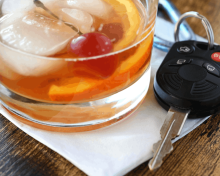
What Are the Odds of Getting Out of a DUI? | Understanding Your Legal Options
Understanding DUI Outcomes: What Are the Odds of Getting Out of a DUI When facing drunk driving charges, many individuals wonder what are the odds of getting out of a DUI. The answer varies significantly based on jurisdiction, evidence, and individual circumstances. DUI laws differ across states, with varying standards for blood alcohol concentration (BAC) violations and testing protocols. Each case presents unique factors that may influence how charges proceed through the legal system. Understanding the legal process, potential defenses, and how evidence is evaluated can help individuals make informed decisions. This article explains the factors that may affect DUI charges, common legal considerations, and why outcomes depend on specific case details rather than general statistics. DUI Terms Explained: Factors That May Influence Case Outcomes Several elements can impact how a drunk driving case proceeds through the court system. Evidence quality plays a central role—breathalyzer calibration records, blood test chain of custody, and field sobriety test administration must meet legal standards. Procedural compliance matters significantly, as law enforcement must follow specific protocols during traffic stops and arrests. Studies indicate that approximately 15-20% of breathalyzer tests may produce inaccurate readings due to calibration issues or operator error. The circumstances of the […]

How Often Does a DUI Case Get Dismissed? | Understanding Your Legal Options
Understanding Dismissals: How Often Does a DUI Case Get Dismissed How often does a DUI case get dismissed is a common question for individuals facing drunk driving charges. The outcome of any impaired driving case depends on numerous factors unique to each situation, including the strength of evidence, procedural accuracy, and applicable legal standards. DUI dismissals can occur at various stages of the legal process, from initial filing through pretrial proceedings. Understanding what influences dismissal rates helps accused individuals recognize the importance of examining their case details. Factors such as BAC testing accuracy, field sobriety test administration, and arrest procedure compliance all play roles in case outcomes. A licensed DUI attorney can explain how specific circumstances may apply to an individual situation and what legal options may be available under state law. Legal Process Overview: DUI Case Dismissal Factors Several legal considerations influence whether a DUI case may be dismissed. Prosecutors must prove impaired driving beyond a reasonable doubt, which requires reliable evidence from BAC testing, field sobriety tests, and officer observations. Testing equipment must be properly calibrated and maintained according to state regulations. Blood and breath test results can be challenged when maintenance records are incomplete or testing protocols […]

How to Defend Against a DUI | Understanding Your Legal Defense Options
Legal Context Explained: DUI Defense Options When facing DUI charges, understanding DUI defense options starts with recognizing that challenging a case involves examining the prosecution’s evidence, not guaranteed dismissal. Every drunk driving case involves specific legal standards the state must prove beyond reasonable doubt, including impairment and proper testing procedures. DUI defense strategies focus on examining whether law enforcement followed proper protocols during your stop, testing, and arrest. California Vehicle Code requires officers to establish reasonable suspicion for stops and probable cause for arrests. When these standards aren’t met, evidence may be suppressible. In the legal context, defense efforts focus on pursuing appropriate outcomes based on a case’s unique circumstances. These may include charge reduction, dismissal due to insufficient evidence, or acquittal at trial. Each outcome depends on factors like BAC test accuracy, witness credibility, and procedural compliance. Licensed DUI attorneys analyze these elements to identify defense opportunities specific to your situation. DUI Terms Explained: Evidence Challenges and Defense Strategies Understanding how to beat a DUI requires knowledge of common evidence challenges. Breathalyzer results, field sobriety tests, and blood tests form the prosecution’s foundation, yet each testing method has potential flaws. Breathalyzer devices require regular calibration and maintenance. California Title […]
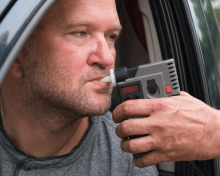
Is Refusing a Breathalyzer Better Than a DUI?
Legal Overview: Is Refusing a Breathalyzer Better Than a DUI? When stopped on suspicion of drunk driving, refusing a breathalyzer test carries automatic penalties in most states. Under implied consent laws, drivers who refuse chemical BAC testing typically face immediate license suspension ranging from 90 days to one year, regardless of whether they were actually impaired. Understanding the Question: Is Refusing a Breathalyzer Better Than a DUI? Is refusing a breathalyzer better than a DUI? This question reflects a critical decision drivers face during traffic stops. The answer depends on specific state laws, individual circumstances, and the evidence already present. Many drivers believe refusal eliminates prosecution evidence, but this assumption overlooks significant legal consequences. Refusing breath testing does not prevent DUI charges—prosecutors can pursue impaired driving cases using officer observations, field sobriety test results, and other evidence. Additionally, breathalyzer refusal often results in enhanced penalties if convicted. Understanding implied consent laws, administrative penalties, and potential criminal consequences helps drivers recognize what refusal actually means under DUI statutes. Each jurisdiction applies different standards to test refusals and subsequent charges. DUI Terms Explained: Implied Consent and Breathalyzer Refusal Laws Implied consent laws establish that obtaining a driver’s license constitutes automatic agreement to […]
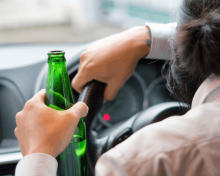
What’s an Effective Defense Against Drunk Drivers | Legal Knowledge and Road Safety Strategies
Understanding Defense: What’s an Effective Defense Against Drunk Drivers Defensive driving and legal awareness form the foundation of protection against impaired drivers. According to the National Highway Traffic Safety Administration, approximately 37 people die in drunk driving crashes daily in the United States, making proactive defense strategies essential for all road users. Legal Context Explained: What’s an Effective Defense Against Drunk Drivers What may constitute an effective defense against drunk drivers begins with understanding both preventive measures and legal protections. When sharing the road, individuals face risks from drivers operating vehicles with blood alcohol concentration (BAC) levels at or above 0.08%, the legal limit in most states. This educational overview addresses defensive strategies, legal rights following impaired driver incidents, and the framework of DUI laws designed to protect public safety. Drunk driving accidents create complex legal situations for all parties involved. Whether someone is concerned about preventing encounters with impaired drivers or understanding rights after an accident caused by someone driving under the influence, knowledge of applicable laws and safety protocols can vary based on state jurisdiction and specific circumstances. Defensive driving techniques, awareness of DUI enforcement patterns, and understanding legal processes form key components of comprehensive protection strategies. Key […]

What Is an Effective Defense for a DUI | Understanding Your Legal Options and Defense Approaches
Key DUI Concepts: What Is an Effective Defense for a DUI Overview Understanding what may constitute an effective defense for a DUI begins with recognizing that each case involves unique circumstances, evidence, and procedural factors. Facing drunk driving charges creates significant stress and uncertainty about your future, employment, and driving privileges. This article provides educational information about common defense approaches, including how BAC violations are tested, challenged, and prosecuted across different jurisdictions. You’ll learn about chemical testing methods and their potential flaws, field sobriety test administration standards, procedural requirements law enforcement must follow, and constitutional protections during traffic stops. Understanding these elements helps you recognize what questions to ask when consulting with licensed legal professionals about your DWI defense options. Case outcomes depend on specific facts, the strength of prosecution evidence, and applicable state laws. 1800DUILaws.com serves as an educational resource to help you understand your charges and locate licensed attorneys in your area who can evaluate your individual circumstances. No article can replace personalized legal analysis of your situation. Challenging BAC Evidence in DUI Cases Law enforcement uses three primary methods to establish intoxicated driving evidence: breath tests, blood tests, and field sobriety tests. Understanding how each works helps […]
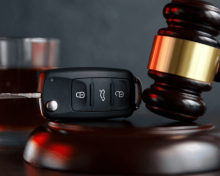
DUI Defense | Comprehensive Guide to Understanding Charges, Procedures, and Legal Considerations
DUI Terms Explained: DUI Defense Fundamentals DUI defense encompasses the legal processes, procedures, and considerations involved when someone faces charges for driving under the influence of alcohol or drugs. Facing drunk driving charges creates significant stress and confusion about legal procedures, potential consequences, and available options. This comprehensive guide provides educational information about arrest procedures, chemical and field testing methods, evidence types prosecutors use, criminal court processes, administrative license actions, constitutional protections throughout proceedings, and considerations when seeking legal assistance for DWI defense. Understanding impaired driving cases requires recognizing that charges trigger both criminal prosecution and separate administrative license consequences through different agencies using different standards. Multiple evidence types—officer observations, field sobriety tests, breath or blood test results, video footage, and documentation—form prosecution cases requiring examination of reliability and procedural compliance. Early understanding of processes, timelines, and requirements enables informed decision-making about representation options, administrative hearing deadlines, and case strategy. 1800DUILaws.com serves as an educational resource helping individuals understand their charges and connect with licensed attorneys who can provide jurisdiction-specific guidance. How DUI Investigations and Arrests Proceed Traffic Stop Initiation and Legal Basis Officers need reasonable suspicion of traffic violations, equipment problems, or impaired driving to initiate stops. Observable violations […]

How to Get Out of DUI Classes | Understanding Legal Modification Options
Legal Modification Explained: How to Get Out of DUI Classes How to get out of DUI classes is rarely about complete requirement elimination and primarily involves understanding legitimate legal pathways for modifying, transferring, or substituting court-ordered education. Courts mandate alcohol education as fundamental drunk driving sentencing components, and attempting to avoid these requirements without court approval can result in probation violations, potential custody, and extended license suspension. This guide explains the limited circumstances where education requirements can be legally modified, reduced, or satisfied through alternatives. You’ll learn about conviction appeal processes that eliminate underlying obligations, hardship petition procedures for medical or geographic barriers, interstate transfer provisions for relocated offenders, and court-approved program substitutions. Understanding these legitimate options helps you navigate genuine obstacles to completion while avoiding illegal non-compliance that compounds your legal problems. The focus remains on working within the legal system rather than attempting to circumvent mandatory requirements through improper means. Appealing Your DUI Conviction to Eliminate Education Requirements How to get out of DUI classes permanently requires overturning the underlying conviction through successful appeals. When appellate courts reverse drunk driving convictions due to constitutional violations, procedural errors, or insufficient evidence, all sentencing requirements including education mandates disappear automatically. […]

Can You Go to Jail for Not Completing DUI Classes? | Understanding Incarceration Risks
Jail Risk Explained: Can You Go to Jail for Not Completing DUI Classes Can you go to jail for not completing DUI classes is a serious concern with real incarceration consequences. Courts mandate alcohol education as fundamental probation conditions, treating non-completion as direct disobedience to judicial orders. When a DUI sentence includes education requirements, completion is generally required under the terms set by the court. This guide explains specific scenarios triggering jail time for education non-completion, factors judges consider when imposing incarceration, differences between first violations and repeated failures, and legal strategies to avoid jail while resolving non-compliance. You’ll learn how probation violation proceedings work, typical jail sentence lengths for drunk driving education failures, circumstances warranting immediate incarceration versus warnings, and options for demonstrating good faith to courts. Understanding when non-completion risks jail helps you prioritize program attendance and take corrective action before violations escalate to custody consequences. Probation Violation Jail Sentences for DUI Education Non-Completion Can you go to jail for not completing DUI classes depends heavily on violation circumstances and your overall probation compliance record. Courts classify education non-completion as probation violations, triggering formal hearings where judges determine appropriate sanctions. Jail remains a standard sentencing option judges regularly […]

What Happens If You Don’t Complete DUI Classes? | Understanding Non-Completion Consequences
Legal Consequences: What Happens If You Don’t Complete DUI Classes What happens if you don’t complete DUI classes affects every aspect of your case resolution and driving privileges. Courts mandate alcohol education as a fundamental sentencing component, and completion is generally required for case closure and license reinstatement. Failure to finish programs creates cascading legal problems that extend far beyond the original drunk driving conviction, including new criminal charges, extended probation, and compounding financial penalties. This guide explains specific consequences triggered by DUI education non-completion, from immediate probation violations to long-term license suspension impacts. You’ll learn how courts respond to partial completion versus total non-enrollment, escalating penalty structures for continued non-compliance, options for addressing completion barriers, and paths to resolving non-compliance status. Understanding these consequences motivates timely program completion while providing strategies for those already facing sanctions to minimize additional legal damage and restore compliance. Immediate Probation Violations from DUI Class Non-Completion What happens if you don’t complete DUI classes starts with automatic probation violations in most jurisdictions. Your sentencing order specifies education completion as a mandatory probation condition with defined deadlines. Missing this requirement constitutes willful violation, triggering court proceedings regardless of your reasons for non-completion. Probation officers file […]

Does Medicaid Cover DUI Classes? | Understanding Insurance and Payment Options
Coverage Insight: Does Medicaid Cover DUI Classes Does Medicaid cover DUI classes is a critical financial question for many facing drunk driving charges with limited resources. Court-mandated alcohol education represents a significant expense, with program costs varying depending on offense severity and duration requirements. Understanding insurance coverage limitations helps you plan for these mandatory costs and identify alternative funding sources when traditional health coverage doesn’t apply. This guide explains why Medicaid generally excludes DUI education from coverage, circumstances where treatment programs may qualify for benefits, state-specific exceptions to standard policies, and practical alternatives including payment plans, sliding-scale fees, and financial assistance programs. You’ll learn the distinction between education and treatment for coverage purposes, documentation requirements for benefit eligibility, and how to access reduced-cost options when facing impaired driving education mandates without traditional payment means. Why Medicaid Typically Excludes Court-Ordered DUI Education Federal Medicaid guidelines classify court-mandated DUI classes as criminal justice penalties rather than medically necessary healthcare services. Does Medicaid cover DUI classes depends on how states interpret coverage rules for court-ordered services. Most state Medicaid programs explicitly exclude legal penalties from reimbursable services, viewing education requirements as punishment components rather than treatment interventions. Education Versus Treatment Coverage Distinctions Basic […]

Where Can I Take DUI Classes Near Me? | Locating Approved Education Programs
Local Resources: Where Can I Take DUI Classes Near Me Where can I take DUI classes near me starts with identifying court-approved providers in your jurisdiction that satisfy your sentencing requirements. After a DUI conviction, courts mandate alcohol education completion before license reinstatement and case closure. Not all programs meet legal standards, making provider verification critical to avoid wasting time and money on unauthorized classes. This guide explains how to locate legitimate DUI education providers in your area, verify court approval status, compare program options, and understand the difference between local classroom settings and online alternatives. You’ll learn specific resources for finding approved providers, questions to ask before enrolling, geographic availability considerations, and how program location affects completion success. Whether you’re in urban areas with multiple options or rural regions with limited providers, understanding where to take court-mandated impaired driving education ensures compliance and efficient case resolution. Using Official State Resources to Locate DUI Education Providers Your state’s judicial system and licensing authorities maintain authoritative lists of approved alcohol education programs. Where can I take DUI classes near me begins with checking these official sources rather than relying on internet searches that may include unauthorized providers. Contact your local court […]

Understanding DUI Class Compliance | Your Complete Guide to Meeting Court-Ordered Education Requirements
Complete DUI Guide: DUI Class Compliance Requirements DUI class compliance represents one of the most critical obligations facing individuals convicted of drunk driving offenses. When you’re required to complete court-ordered alcohol education programs, understanding every aspect of compliance requirements can affect how courts view compliance and whether additional issues arise. This comprehensive guide examines everything accused drivers need to know about DUI class compliance, from initial enrollment through final certification, helping you navigate the complex requirements of alcohol education programs while protecting your driving privileges and legal standing. This article provides detailed information about DUI class compliance requirements across different program types, jurisdictions, and offense levels. You’ll learn how alcohol education programs work, what courts expect from participants, how to maintain compliance throughout your program, and what happens if you encounter obstacles. Whether you’re researching pre-conviction requirements, understanding sentencing conditions, or seeking help with compliance challenges, this resource offers the legal knowledge needed to successfully complete your obligations. At 1800DUILaws, our mission is helping accused drunk drivers learn about charges and locate legal help. Understanding DUI class compliance is essential for understanding your rights and the compliance process in your case. DUI Terms Explained: What Is DUI Class Compliance? Legal […]

How to Sign Up for DUI Classes Complete Enrollment Guide
Step-by-Step Enrollment Process for DUI Classes How to sign up for DUI classes starts with understanding enrollment requirements immediately after your drunk driving conviction or plea agreement. Courts mandate specific education programs as part of sentencing, and courts set enrollment deadlines as part of sentencing requirements. The enrollment process involves verifying approved providers, gathering required documentation, completing assessments, and coordinating schedules with program administrators. This guide walks you through every step of registering for court-ordered alcohol education, from obtaining your court paperwork to attending your first session. You’ll learn which documents providers require, how to identify legitimate approved programs in your jurisdiction, what enrollment costs to expect, and critical deadlines tied to court-ordered education requirements. Finding Court-Approved DUI Education Providers Not all alcohol education programs satisfy court requirements. Each state maintains lists of approved providers, and enrolling in an unauthorized program wastes time and money while leaving court obligations unfulfilled. How to sign up for DUI classes begins with verifying provider approval status through your local court clerk, DMV, or probation officer. Verification Steps for Approved Programs Start by checking your court order or sentencing documents for specific program requirements. Some courts pre-approve providers by name, while others require programs […]

How Do DUI Classes Work? | Understanding Your DUI Education Requirements
Program Insight: How Do DUI Classes Work How do DUI classes work in your specific case? If you’re facing drunk driving charges, understanding DUI education requirements is critical to navigating your legal situation successfully. Courts mandate these programs as both punishment and rehabilitation, requiring accused drivers to complete alcohol or drug education before regaining driving privileges. Whether you’re dealing with a first-time DUI or subsequent offense, knowing the structure, duration, and expectations of these classes helps you understand and meet court-ordered requirements. This guide explains DUI class types, completion requirements, scheduling flexibility, costs, and how program participation affects your case outcome. You’ll learn what happens during sessions, how to choose approved programs, and why timely enrollment is often viewed as part of complying with court-ordered DUI education requirements. DUI Class Types and Duration Requirements DUI education programs vary significantly based on offense severity and state regulations. First-time offenders typically complete 12 to 16 hours of Level I education covering alcohol’s effects on driving, BAC awareness, and risk assessment. These entry-level programs usually meet weekly for several months, allowing participants to maintain work schedules while fulfilling court orders. Understanding Multi-Level DUI Programs How do DUI classes work for repeat offenders? Second […]

What Do DUI Classes Consist Of? | Understanding Court-Ordered DUI Education Requirements
Program Components Explained: What Do DUI Classes Consist Of If you’re facing DUI charges, understanding what do DUI classes consist of helps you prepare for court-ordered requirements ahead. After a drunk driving conviction, judges typically mandate completion of state-approved alcohol education programs as part of sentencing. These classes serve multiple purposes: satisfying legal obligations, reducing recidivism rates, and helping offenders understand the serious consequences of impaired driving. DUI education programs follow standardized curriculum guidelines established by state agencies and certified providers. According to the National Highway Traffic Safety Administration, DUI education is associated with lower rates of repeat offenses when combined with other intervention strategies. You’ll learn about blood alcohol concentration limits, the science behind alcohol impairment, legal penalties, and practical alternatives to drunk driving. Most importantly, these programs provide a structured path to license reinstatement and demonstrate accountability to the court system. Core Curriculum Covered: DUI Education Program Structure Alcohol Education and Assessment Components What do DUI classes consist of in terms of educational content? The foundation includes comprehensive alcohol education covering how ethanol affects cognitive function, motor skills, and judgment. Certified instructors explain BAC calculations, absorption rates, and why standard drink measurements matter for impaired driving prevention. The […]

What Do You Do in DUI Classes | Understanding Court-Ordered DUI Education Programs
Program Requirements Explained: What to Expect at DUI Classes Facing court-ordered DUI education can feel overwhelming when you’re already dealing with criminal charges and legal stress. Understanding what to expect at DUI classes helps you prepare mentally, financially, and logistically for this mandatory requirement. This comprehensive guide explains the class structure, curriculum content, duration expectations, and successful completion strategies so you can fulfill your legal obligations confidently. Whether you’re dealing with a first-time DUI or repeat offense, knowing the program requirements helps you plan effectively and avoid additional legal complications from non-compliance. Class Format Breakdown: What to Expect at DUI Classes Program Structure and Duration DUI education programs follow standardized curricula approved by state authorities and program length varies based on offense level and court requirements. First-time offenders generally complete shorter programs, while repeat offenders may be assigned longer, multi-month programs. Program duration and structure depend on applicable regulations and individual circumstances. Class sessions include: Educational lectures on alcohol pharmacology and impairment effects Group discussions facilitated by certified counselors Written assignments and self-assessment exercises Victim impact presentations or videos Personal accountability planning and goal-setting What Happens During Sessions When attending DUI classes, expect interactive environments rather than passive lectures. Certified […]

What to Expect at DUI Classes | Your Complete Guide to Court-Ordered Education
Program Requirements Explained: What to Expect at DUI Classes Facing court-ordered DUI education can feel overwhelming when you’re already dealing with criminal charges and legal stress. Understanding what to expect at DUI classes helps you prepare mentally, financially, and logistically for this mandatory requirement. This comprehensive guide explains the class structure, curriculum content, duration expectations, and successful completion strategies so you can fulfill your legal obligations confidently. Whether you’re dealing with a first-time DUI or repeat offense, knowing the program requirements helps you plan effectively and avoid additional legal complications from non-compliance. Class Format Breakdown: What to Expect at DUI Classes Program Structure and Duration DUI education programs follow standardized curricula approved by state authorities and program length varies based on offense level and court requirements. First-time offenders generally complete shorter programs, while repeat offenders may be assigned longer, multi-month programs. Program duration and structure depend on applicable regulations and individual circumstances. Class sessions include: Educational lectures on alcohol pharmacology and impairment effects Group discussions facilitated by certified counselors Written assignments and self-assessment exercises Victim impact presentations or videos Personal accountability planning and goal-setting What Happens During Sessions When attending DUI classes, expect interactive environments rather than passive lectures. Certified […]

DUI Class Process Guide | Requirements And Legal Help
Complete DUI Guide: DUI Class Process Information The DUI class process represents a mandatory educational component that most individuals convicted of driving under the influence must complete. After a DUI arrest or conviction, courts across the United States typically require offenders to participate in alcohol education or substance abuse treatment programs as part of their sentence, probation conditions, or license reinstatement requirements. These programs serve multiple purposes: educating offenders about the dangers of impaired driving, assessing potential substance abuse issues, and reducing recidivism rates through intervention and awareness. At 1800DUILaws, our mission focuses on helping accused drunk drivers learn about all aspects of their charges, including mandatory program requirements, and connecting them with legal help to support compliance and informed decision-making. The information provided here offers a comprehensive overview of what individuals can expect when facing court-ordered alcohol education requirements, from initial referral through final completion verification and its impact on your driving privileges and criminal case resolution. DUI Terms Explained: Understanding Alcohol Education Programs First Offender Programs First offender DUI education programs represent the most basic mandatory alcohol education level for individuals with no prior impaired driving history. These programs typically require 12 to 16 hours of classroom instruction […]

Can I Do DUI Classes Online? | Understanding Your DUI Education Options
Key Legal Concepts: Can I Do DUI Classes Online in Your State If you’re facing DUI charges or have already been convicted, completing required alcohol education classes is typically mandatory for license reinstatement and legal compliance. The question “can I do DUI classes online?” has become increasingly common as remote education expands nationwide. Online DUI classes offer convenience for those balancing work, family obligations, and court requirements. However, not all jurisdictions accept virtual DUI education programs. According to the National Highway Traffic Safety Administration (NHTSA), DUI education completion rates have improved with online options, but court-approved programs must meet strict state standards. Before enrolling in any online drunk driving course, you must verify that your state, county, and specific court will accept online completion for your impaired driving offense. Step-by-Step Process: How Online DUI Classes Work Legally Online DUI education programs must be state-certified and court-approved to satisfy your drunk driving conviction requirements. Most legitimate online DUI classes include interactive content, assessments, and identity verification measures to ensure compliance with legal standards. The typical online DUI class structure includes: Enrollment Verification – Submit court documentation and personal identification Structured Curriculum – Complete modules covering BAC effects, impaired driving consequences, and […]

Does WV Accept Online DUI Classes? | Your Complete West Virginia Guide
Key Requirements Explained: Does WV Accept Online DUI Classes Understanding whether West Virginia accepts online DUI classes is crucial for anyone facing drunk driving charges in the Mountain State. The straightforward answer is that West Virginia does not recognize online DUI education programs for residents who received their DUI conviction within state borders. This policy reflects the state’s commitment to supervised, face-to-face alcohol education and assessment. West Virginia requires all convicted DUI offenders to complete mandatory alcohol education through the state’s Safety and Treatment Program. According to the West Virginia Division of Motor Vehicles, this 18-hour program must be completed in person with an authorized provider. The DMV maintains strict oversight to ensure program quality and participant accountability. While some states have adapted to allow online drunk driving classes, WV law remains firm on in-person attendance requirements. You’ll learn about WV’s specific DUI class requirements, exceptions for non-residents, and the steps needed to satisfy your court obligations. West Virginia DUI Class Requirements Mandatory 18-Hour Safety and Treatment Program West Virginia impaired driving offenders must complete the Safety and Treatment Program administered by certified providers throughout the state. This comprehensive program addresses alcohol awareness, the physical effects of substance abuse, and […]

Does Arizona Accept Online DUI Classes? | Complete Requirements Guide
Understanding Arizona’s Requirements: Does Arizona Accept Online DUI Classes? If you’re facing a DUI charge in Arizona, understanding the state’s education requirements is critical for license reinstatement and legal compliance. Does Arizona accept online DUI classes? The answer is nuanced: Arizona permits online alcohol screening but mandates in-person DUI education and treatment programs. The Arizona Department of Transportation (ADOT) Motor Vehicle Division strictly enforces these requirements through certified providers only. Making the wrong choice could delay your license reinstatement by months and create additional legal complications. This guide explains exactly what Arizona accepts, which providers qualify, and how to ensure your DUI education fulfills applicable court and administrative requirements. Arizona’s Online DUI Screening vs. In-Person Education Requirements Arizona’s DUI education system operates in two distinct phases, with different rules for online participation at each stage. The initial alcohol screening can be completed online through approved providers. This screening assessment determines your treatment level—ranging from education-only classes to intensive outpatient programs. The Arizona Department of Health Services licenses screening providers, and many offer telehealth options that satisfy state requirements. However, this convenience ends after screening. All subsequent DUI education and treatment programs must be completed in-person through facilities certified by the […]

Can You Take DUI Classes Online in California? A Complete Guide to 2025 Requirements
DUI Classes Explained: Can You Take DUI Classes Online in California Can you take DUI classes online in California as a resident facing drunk driving charges? The answer depends on your specific situation. California law prohibits residents from completing entirely self-paced online DUI education programs to satisfy court or DMV requirements. However, significant changes since 2020 now allow DHCS-licensed programs to offer virtual services including live counseling sessions and educational components. If you received a DUI in California and live in-state, you must enroll in a state-licensed program that combines virtual and in-person elements. Understanding California’s DUI class requirements helps you meet legal obligations while exploring the most convenient approved options. Key Legal Requirements: California DUI Class Format Options California’s Department of Health Care Services licenses all legitimate DUI programs operating in the state. These DHCS-approved providers can now offer virtual services following regulatory updates that made pandemic-era flexibilities permanent. Can you take DUI classes online in California through these licensed programs? Yes, but only specific components qualify for virtual attendance. Licensed programs may provide virtual group counseling sessions, educational classes, and individual interviews through platforms like Zoom. However, participants must maintain strict engagement requirements: cameras must remain on throughout […]

Can You Do DUI Classes Online? Your State-by-State Legal Guide
State Rules: Are Online DUI Classes Accepted in Court Can you do DUI classes online in your state? The answer depends on where you were convicted, your offense level, and court approval. Online DUI classes offer convenience for accused drivers balancing work, family, and legal obligations, but not all virtual programs satisfy court-mandated education requirements. This guide explains state acceptance policies, approval processes, program selection, and compliance strategies to help you complete your drunk driving education requirements efficiently. Understanding which online DUI education options meet your jurisdiction’s standards protects your license reinstatement timeline and ensures legal compliance with your impaired driving conviction terms. State Requirements for Online DUI Classes State acceptance of online DUI classes varies dramatically across the United States. According to the National Highway Traffic Safety Administration (NHTSA), approximately 45 states currently permit some form of virtual DUI education for certain offense levels. First-time offenders typically have the broadest access to online programs, while repeat DWI offenders often face mandatory in-person requirements. California, Texas, Florida, and Arizona lead in online DUI class acceptance, offering state-approved virtual programs through certified providers. However, states like South Dakota and Alaska maintain stricter in-person requirements for all drunk driving convictions. The Substance […]

Online DUI Classes: Understanding Your Court-Ordered Education Requirements
Key Legal Concepts: Understanding Online DUI Classes Online DUI classes are court-approved educational programs designed to help individuals convicted of driving under the influence understand the risks of impaired driving, develop strategies to prevent future offenses, and fulfill mandatory sentencing requirements. These programs have become increasingly accepted across the United States as technology has advanced and research has demonstrated their effectiveness. Online DUI classes provide a convenient way to fulfill court-ordered education requirements following a drunk driving arrest. According to the National Highway Traffic Safety Administration, over 85% of convicted drunk drivers successfully complete DUI education programs, with online formats showing completion rates 20% higher than traditional in-person classes due to increased accessibility and scheduling flexibility. State-Specific Program Requirements Each state maintains different standards for DUI education programs. Some states fully embrace online learning platforms, while others require partial or complete in-person attendance. For example, California’s AB 2190 program allows eligible first-time offenders to complete portions of their DUI program online, while states like Florida offer fully online options for first offenders through approved providers. Types of Online DUI Programs Available Online DUI classes generally fall into three categories: awareness programs (4-12 hours), education programs (12-24 hours), and treatment programs […]

How Many Days a Week Are DUI Classes and What to Expect
Class Frequency Explained: How Many Days a Week Are DUI Classes Understanding how many days a week are DUI classes is crucial when you’re facing drunk driving charges and planning your schedule around court-mandated education. DUI classes represent a common sentencing component that helps fulfill your legal obligations while addressing substance abuse patterns. This guide explains typical DUI class schedules, what determines your weekly attendance requirements, and how different program types affect your time commitment. You’ll learn about standard first-offender programs, intensive treatment options, the role of BAC levels in determining program length, and how to manage DUI education alongside work and family responsibilities. Whether you’re dealing with a first-time DWI charge or facing enhanced penalties, knowing your educational requirements helps you comply with court orders and move forward. Step-by-Step Overview: Standard DUI Education Program Schedules DUI education program schedules vary significantly based on jurisdiction and offense severity. First-offender programs typically meet once or twice weekly for 12-16 weeks, with each session lasting 2-3 hours. According to the National Highway Traffic Safety Administration (NHTSA), most states require minimum education hours ranging from 12 to 40 hours for first DUI convictions. Second or subsequent DUI offenses trigger intensive programs that often […]

How Many DUI Classes Do I Have to Take? Understanding Your Court-Ordered Requirements
Requirements Explained: How Many DUI Classes Do I Have to Take If you’re facing drunk driving charges, understanding how many DUI classes do I have to take is crucial for license reinstatement and legal compliance. Court-ordered DUI education programs vary dramatically based on your state, BAC level at arrest, prior offenses, and whether anyone was injured. Most states mandate alcohol education as part of sentencing, and completing these programs is typically required as part of the process to seek license reinstatement. This guide explains typical DUI class requirements, program duration by offense level, factors that determine your education mandates, and how to ensure compliance. You’ll learn what to expect from court-ordered education, program costs, and the consequences of non-completion. According to the Substance Abuse and Mental Health Services Administration, DUI education programs are used as part of broader efforts to address impaired driving and promote public safety. State Requirements: Understanding DUI Education Program Lengths First-offense DUI charges typically require 12-16 hours of alcohol awareness education in most states. California mandates a 3-month program for first offenders, while Texas requires 12-32 hours depending on BAC level. Florida first-time offenders complete DUI school ranging from 12 hours for standard offenses to 21 […]

How Many Classes Would I Need to Do for a DUI: Complete Education Requirements Guide
Program Requirements Explained: How Many Classes Would I Need to Do for a DUI If you’re facing drunk driving charges, understanding DUI class requirements is essential for license reinstatement and completing your sentence. The number of alcohol education classes you’ll attend depends on several legal factors, including your state’s laws, whether this is your first offense, and your blood alcohol concentration at arrest. DUI education programs serve as both punishment and rehabilitation, designed to reduce recidivism through evidence-based curriculum about impaired driving risks. According to the National Highway Traffic Safety Administration, court-mandated alcohol classes reduce repeat DUI offenses by approximately 7-9% when properly completed. Your class requirements will be determined during sentencing or as a condition for license restoration through your state’s Department of Motor Vehicles. First-time DUI offenders typically face shorter program requirements ranging from 12-16 hours of basic education spread over 6-8 weeks. These programs focus on alcohol’s effects on driving ability, legal consequences, and decision-making strategies. However, states like California may require 30 hours for first offenses with BAC levels above 0.15%, while Arizona mandates screening that could lead to 16-36 hours depending on assessment results. Step-by-Step Defense: Understanding DUI Class Duration and Types State-approved DUI programs […]

How Many Hours Are DUI Classes and What You Need to Complete Them
Program Requirements Explained: How Many Hours Are DUI Classes If you’re facing a DUI charge, understanding alcohol education requirements is critical to license reinstatement and case resolution. How many hours are DUI classes directly impacts your schedule, costs, and when you can legally drive again. Most accused drivers discover these mandated programs only after conviction, leaving them unprepared for the time commitment ahead. DUI education classes serve as court-ordered requirements designed to reduce recidivism through alcohol awareness training. According to the National Highway Traffic Safety Administration (NHTSA), approximately 1.5 million drivers are arrested annually for drunk driving offenses, with most facing mandatory education programs. Understanding DUI Class Duration: Standard Hour Requirements by Offense Level First-Time DUI Offenders First-offense drunk driving charges typically require 12-16 hours of alcohol education classes spread across 4-8 weeks. These entry-level programs focus on BAC education, impairment risks, and decision-making strategies. States like California mandate 12-hour programs for first offenders with BAC below 0.15%, while higher BAC readings trigger enhanced programs. The Substance Abuse and Mental Health Services Administration (SAMHSA) has studied structured DUI education programs and their role within broader prevention and treatment frameworks. Most first-time programs meet weekly for 2-3 hour sessions, allowing participants […]

Understanding DUI Class Duration: Complete Guide to Alcohol Education Requirements and Timeframes
Complete DUI Guide: DUI Class Duration Requirements Explained DUI class duration is one of the most common concerns facing individuals charged with drunk driving offenses. Understanding the time commitment required for court-mandated alcohol education programs is essential for planning your defense strategy and meeting legal obligations. Navigating DUI penalties can feel overwhelming when dealing with license suspension, fines, and criminal proceedings. Mandatory alcohol education classes represent a significant time investment impacting your work schedule and personal life. These programs are designed to reduce recidivism and educate offenders about intoxicated driving dangers. This guide provides detailed information about DUI class duration across different offense levels, state requirements, program types, and factors influencing your time commitment. At 1800DUILaws, our mission is helping accused drunk drivers learn about charges and locate expert legal help. Key Legal Concepts: Understanding DUI Education Program Types First-Time Offender Programs First-time DUI offenders face the shortest requirements, with DUI class duration ranging from 8 to 16 hours in most states. These programs focus on alcohol awareness, intoxication effects, and decision-making strategies through weekly 60-90 minute sessions. California mandates 3 months (12 hours) for BAC 0.08-0.14%, Texas requires 12 hours, Florida 12 hours, and Arizona 16 hours minimum. The […]

How Much Does a DUI Class Cost in WV: A Breakdown of Fees and Requirements
How Much Does a DUI Class Cost in West Virginia If you’re facing a DUI in West Virginia, understanding how much does a DUI class cost in WV is essential for planning your defense. State-approved DUI safety programs typically range from $150 to $400 depending on the program level, with additional administrative fees that can add $50-$100 to your total costs. Cost Breakdown Explained: How Much Does a DUI Class Cost in WV Understanding how much does a DUI class cost in WV starts with knowing that West Virginia mandates alcohol safety and treatment programs for most DUI convictions. The West Virginia Division of Motor Vehicles (DMV) requires completion of state-approved programs before license reinstatement, making cost planning crucial for anyone navigating drunk driving charges. This guide breaks down the specific fees, program types, and payment options available to help you budget effectively while meeting legal requirements. West Virginia law requires different program levels based on your BAC violation severity and prior offenses. Whether you’re dealing with your first impaired driving charge or facing enhanced penalties, knowing the exact costs helps you prepare financially while focusing on your legal defense strategy. DUI Program Types: Understanding Your Required Class Level and […]

How Much Are DUI Classes in KY? Complete Cost Guide
How Much Are DUI Classes in KY? A Complete Cost Breakdown How much are DUI classes in KY? Kentucky DUI education programs vary in cost depending on the program length and provider. First-time offenders usually complete a 12-20 hour program, while repeat offenders may need extended courses ranging from 90 days to one year, with costs increasing accordingly. How Much Are DUI Classes in KY: Essential Information Understanding how much DUI classes cost in Kentucky is crucial when facing drunk driving charges. Kentucky law mandates alcohol and drug education for convicted DUI offenders as part of their sentence. These programs help you meet court requirements while providing valuable education about impaired driving risks. The total investment depends on your offense level, chosen provider, and program duration. This guide breaks down Kentucky DUI class costs, program requirements, and payment options to help you budget effectively and complete your court-ordered education successfully. Costs Explained: DUI Class Fees in Kentucky Kentucky DUI education program costs vary based on several factors. Standard first-offense programs typically involve program fees for the required educational component. According to the Kentucky Transportation Cabinet, state-approved providers must meet specific curriculum standards while maintaining reasonable fee structures. Second and subsequent […]

How Much Does a DUI Class Cost in Illinois? Your Complete Price Guide
Discovering How Much Does a DUI Class Cost in Illinois: A Full Guide How much does a DUI class cost in Illinois? Illinois DUI classes typically range from $150 to $500, depending on your offense level and program requirements. First-time offenders usually pay $150-$250 for Risk Education classes, while repeat offenders face $300-$500 for more intensive treatment programs. Cost Overview Explained: How Much Does a DUI Class Cost in Illinois Understanding how much a DUI class costs in Illinois is critical when facing drunk driving charges. Illinois law mandates alcohol education and treatment programs as part of DUI sentencing, and these costs add to your overall financial burden. The Illinois Secretary of State oversees approved programs that meet court requirements. Whether you’re dealing with a first-time DUI or multiple offenses, knowing the specific program costs helps you budget for this mandatory legal obligation. Illinois distinguishes between Risk Education programs for first offenders and longer treatment programs for repeat DWI convictions. Every accused driver needs accurate cost information to prepare for court-ordered requirements while managing the financial impact of their impaired driving charge. Class Types Compared: Illinois DUI Education Program Costs Illinois requires different alcohol education levels based on your offense […]

California DUI Class Costs: A Complete Guide to Understanding Fees
How Much Does a DUI Class Cost in California? Your Full Expense Breakdown The cost of a DUI class in California varies, typically ranging from $500 to $1,800 depending on the program length. First-time offenders usually pay around $600-$900 for a three-month program, while repeat offenders face higher costs for longer programs. Costs Explained: How Much Does a DUI Class Cost in California Facing a DUI conviction in California means mandatory alcohol education classes, and understanding the financial commitment helps you prepare for the road ahead. The cost of your court-ordered program depends on your conviction level, BAC at arrest, and whether this is a first or repeat offense. This guide also breaks down exactly how much a DUI class costs in California, what determines your fees, and how to find state-licensed providers. You’ll learn about payment assistance options and what your program enrollment includes, giving you a clear picture of the financial requirements after a drunk driving conviction. Program Types: Understanding California’s DUI Education Requirements Additionally, California operates several state-approved DUI programs through the Department of Health Care Services (DHCS), each with distinct pricing structures. The California Department of Health Care Services licenses all legitimate providers who must follow […]

How Much Do DUI Classes Cost? Understanding Your Financial Requirements
Breaking Down How Much Do DUI Classes Cost: State-by-State Overview How much do DUI classes cost? Court-ordered DUI education programs typically range from $150 to $500 for standard classes, with comprehensive programs costing $500 to $2,000 depending on your offense level, state requirements, and program length. First-time offenders generally pay less than repeat offenders. Cost Factors Explained: How Much Do DUI Classes Cost Understanding how much do DUI classes cost starts with recognizing that drunk driving education isn’t optional after a DUI conviction—it’s a mandatory court requirement. The financial investment varies significantly based on multiple factors that affect your total expense. Courts mandate these programs to reduce impaired driving recidivism, and completion is essential for license reinstatement and satisfying probation terms. Your specific cost depends on offense severity, program duration, state regulations, and whether additional assessments are required. This guide breaks down the complete financial picture so you can budget appropriately and understand what influences these mandatory educational expenses. Price Range Breakdown: Standard DUI Education Program Costs First-time DUI offenders typically face education requirements costing between $150 and $500 for basic programs. These entry-level classes usually span 12 to 16 hours of instruction covering alcohol awareness, the effects of intoxication […]

Understanding DUI Class Costs: A Comprehensive Guide to Court-Mandated Alcohol Education Programs
DUI Class Costs Explained: Everything You Need to Know DUI class costs may vary depending on your state, offense level, and program duration. First-time offenders may pay for basic programs, while repeat offenders face higher costs for extended courses. Additional expenses may include assessment fees, registration costs, and potential travel expenses, with total educational requirements varying. DUI class costs represent one of the most significant financial obligations facing individuals convicted of drunk driving offenses. Understanding these expenses upfront helps accused drivers budget appropriately and avoid compliance failures that could result in additional penalties or extended probation periods. The total cost of fulfilling your court-mandated alcohol education requirements depends on multiple factors including your state’s regulations, the severity of your offense, your BAC level at arrest, and whether you’re a first-time or repeat offender. At 1800DUILaws, our mission centers on helping accused drunk drivers learn about their charges and locate expert legal help. This comprehensive guide examines every aspect of DUI class costs, from initial assessment fees to completion certificates, helping you understand what to expect and how qualified defense attorneys can potentially reduce your overall financial burden through charge negotiation or alternative sentencing arrangements. Program Types Explained: DUI Class Costs […]

What Makes a DWI a Felony and How Serious Are the Consequences
Understanding What Makes a DWI a Felony: Key Factors Explained What makes a DWI a felony depends on aggravating factors including prior convictions, accidents causing injury or death, high blood alcohol concentration above 0.15%, minor passengers under 16, or third/fourth offenses within lookback periods. Felony drunk driving convictions carry substantially harsher penalties than misdemeanors, which may include multi-year state prison sentences, significant fines, long-term license consequences, and felony records that can affect employment, housing, voting rights, and firearm ownership. Felony Classification Explained: Understanding Charge Escalation What makes a DWI a felony involves specific statutory triggers that elevate standard misdemeanor drunk driving charges to felony status with dramatically increased penalties. The National Highway Traffic Safety Administration (NHTSA) recognizes that most first-offense DWI charges qualify as misdemeanors punishable by county jail sentences under one year. However, certain circumstances transform impaired driving into felony offenses prosecuted more aggressively with state prison sentences exceeding one year and felony criminal records that may carry long-term consequences. Understanding felony DWI classification is crucial because consequences extend far beyond immediate criminal penalties. Felony records appear prominently on background checks, disqualifying applicants from many employment opportunities, professional licenses, educational programs, and housing options. Prior Convictions: Repeat Offense Felony […]

DUI Classes: Your Complete Guide to Court-Ordered Alcohol Education Programs
Complete Educational Authority: DUI Classes Requirements and Options DUI classes represent a critical component of drunk driving case resolution across all 50 states. When you’re arrested for driving under the influence, completing court-ordered alcohol education becomes one of your most important legal obligations. These programs exist to educate offenders about the dangers of impaired driving, assess substance abuse issues, and reduce recidivism rates among convicted drunk drivers. At 1800DUILaws, our mission is to help accused drunk drivers learn about their charges and locate expert legal help nationwide. This comprehensive guide explores every aspect of DUI classes, from initial court orders through program completion. You’ll discover the different types of alcohol education programs available, state-specific requirements, cost considerations, and how these classes impact your overall DUI case. We’ll also examine the relationship between DUI classes and other penalties like license suspension, ignition interlock devices, and probation terms. The consequences of failing to complete required DUI classes extend far beyond your immediate legal situation. Noncompliance can result in extended license suspensions, probation violations, additional fines, and even jail time. Conversely, proactive enrollment and successful completion demonstrate accountability to the court, which can positively influence sentencing outcomes and expedite your return to legal […]

Will I Go to Jail for First DWI and What Are Your Sentencing Options
The Truth About Will I Go to Jail for First DWI Convictions Will I go to jail for first DWI depends on your state’s laws and case circumstances, but many first-time cases may involve suspended sentences, probation, alternative sentencing, or diversion programs, depending on the jurisdiction and case circumstances. While most states authorize jail terms ranging from 24 hours to one year for first offenses, judges frequently impose suspended sentences allowing defendants to avoid incarceration by successfully completing probation, alcohol education, and community service requirements. Jail Likelihood Explained: Understanding First Offense Reality Will I go to jail for first DWI concerns nearly every defendant facing initial drunk driving charges. The realistic answer: possible but not inevitable. Most jurisdictions authorize jail sentences for first-offense DWI, but actual incarceration rates vary dramatically based on state laws, judicial discretion, blood alcohol concentration levels, and aggravating circumstances. The National Highway Traffic Safety Administration (NHTSA) recognizes that treatment-focused approaches often prove more effective than incarceration for first-time offenders without prior criminal records. Understanding your jurisdiction’s specific practices provides realistic expectations. Some states mandate minimum jail sentences—commonly 24-48 hours—even for standard first offenses without aggravating factors. Others allow judges complete discretion, frequently suspending jail terms for […]

How to Expunge a DWI and Clear Your Criminal Record
Learning How to Expunge a DWI: Requirements and Procedures How to expunge a DWI involves filing court petitions requesting legal removal of drunk driving convictions from public criminal records. Expungement eligibility typically requires completing sentence terms, waiting 3-10 years post-conviction, maintaining clean records, and meeting state-specific criteria. While processes vary by jurisdiction, expungement restricts public access to conviction records, which may reduce certain barriers related to employment, housing applications, and professional licensing, depending on the situation and applicable law. Legal Record Clearing Steps How to expunge a DWI begins with understanding expungement—the legal process sealing or erasing criminal convictions from public records. The National Highway Traffic Safety Administration (NHTSA) recognizes that conviction records create lasting barriers to employment, housing, and professional advancement even years after completing sentences. Expungement may allow qualified individuals to limit public background check access to conviction information, subject to statutory restrictions and exceptions. However, expungement doesn’t erase all record traces. Law enforcement, courts, and certain government agencies retain sealed records for internal purposes. Additionally, immigration proceedings, security clearances, and professional licensing boards may access expunged records despite public restriction. The Centers for Disease Control and Prevention (CDC) emphasizes that expungement availability varies dramatically by state, with […]

Can You Plea Down a DWI and How Does Plea Bargaining Work
Understanding Can You Plea Down a DWI: Negotiation Strategies Explained Can you plea down a DWI through plea bargaining? In some cases, defense attorneys may negotiate plea agreements that reduce DWI charges to lesser offenses, such as reckless driving. Plea bargaining allows defendants to consider alternative resolutions that may involve different charges and penalties compared to an impaired driving conviction. Plea Bargaining Explained: Understanding Charge Negotiations Can you plea down a DWI depends on understanding plea bargaining—the negotiation process where defense attorneys and prosecutors reach agreements reducing original charges in exchange for guilty pleas. Many criminal cases, including drunk driving charges, resolve through plea agreements rather than trials. This process benefits both sides: prosecutors secure convictions without trial expenses and time investments, while defendants avoid harsher penalties associated with original charges. Common Plea Agreements: What Charges DWI Gets Reduced To When considering can you plea down a DWI, several reduced charges commonly appear in plea agreements. Reckless driving represents the most frequent plea bargain result for drunk driving cases. While reckless driving carries significant penalties including fines of $500-$1,000 and potential jail time up to one year, it avoids impaired driving conviction status. Critically, reckless driving typically doesn’t appear as […]

Can a DWI Be Reduced: Your Complete Guide to Charge Reduction Options
DUI Help Preview Can a DWI be reduced to a lesser charge? In some cases, defense attorneys may be able to negotiate reductions through plea bargaining, evidence challenges, and strategic negotiations. Common reduced charges can include reckless driving, careless driving, or certain traffic-related offenses. These outcomes may help some individuals avoid impaired-driving convictions and may lessen potential licensing, insurance, or employment-related impacts. Charge Reduction Explained – Understanding Your Options Can a DWI be reduced depends on several factors, including evidence strength, your record, the prosecutor’s position, and your attorney’s skill. Charge reduction—commonly called plea bargaining—allows defendants to plead guilty to lesser offenses in exchange for dismissing original drunk driving charges. NHTSA notes that court backlogs, limited resources, and weak evidence often create chances for negotiated resolutions. Understanding reduction possibilities helps set realistic expectations when discussing available legal options. Prosecutors reduce charges when evidence shows problems, such as bad stops, testing issues, or missing witnesses. Additionally, first-time offenders with lower blood alcohol concentration readings and no accidents may be viewed more favorably in negotiations than repeat offenders with aggravating factors. Your attorney evaluates case specifics to determine reduction likelihood and optimal negotiation strategies. Common Reduced Charges: Lesser Offenses for DWI Cases […]

DWI Plea Deals Reductions and State Differences: State-by-State Legal Defense Guide
Understanding DWI Plea Deals Reductions and State Differences: What You Need to Know DWI plea deals reductions and state differences can dramatically impact your case outcome, with charge reduction rates can vary depending on jurisdiction and case specifics. Understanding how prosecutors negotiate in your specific state—whether they favor wet reckless pleas, deferred adjudication, or alternative sentencing—gives accused drivers crucial leverage when facing drunk driving charges and seeking optimal case resolution. Complete DUI Guide: DWI Plea Deals Reductions and State Differences Fundamentals DWI plea deals reductions and state differences represent one of the most critical yet misunderstood aspects of drunk driving defense, with negotiation outcomes varying dramatically based on jurisdiction, prosecutor policies, and individual case circumstances. When facing DWI charges, most accused drivers don’t realize that trial is rarely the end result—the majority of drunk driving cases resolve through plea negotiations. However, the specific plea options available, likelihood of charge reductions, and alternative sentencing programs differ substantially from state to state, making location one of the most significant factors in case outcomes. This guide examines DWI plea deals reductions and state differences across U.S. jurisdictions, explaining how plea bargaining works in drunk driving cases, what charge reductions prosecutors commonly offer, which […]

Understanding Is a DUI Better Than a DWI: What You Should Know
DUI Help Preview Is a DUI better than a DWI depends entirely on your state’s legal definitions, but in most jurisdictions these terms describe identical offenses with the same penalties. Some states use DUI (Driving Under the Influence), others use DWI (Driving While Intoxicated), and a few distinguish between them—typically designating one for alcohol and another for drugs. Neither charge is inherently “better” since penalties depend on BAC level, prior convictions, and case circumstances rather than terminology alone. Terminology Differences Explained – State Naming Conventions Is a DUI better than a DWI is a common question reflecting confusion about impaired driving terminology. In reality, these acronyms represent naming preferences rather than different offense severities in most jurisdictions. States independently define drunk driving laws using various terms including DUI, DWI, OWI (Operating While Intoxicated), and OUI (Operating Under the Influence). The National Highway Traffic Safety Administration (NHTSA) recognizes that terminology variations create public confusion despite describing essentially the same criminal conduct—operating vehicles while impaired by alcohol or drugs. Understanding terminology matters less than knowing your specific charges, potential penalties, and available defenses. Whether prosecutors charge you with DUI or DWI, the fundamental elements remain consistent: law enforcement must prove you operated […]

Understanding What Is the Look Back Period for DWI: State-by-State Breakdown
Lookback Period Defined – Understanding DWI Offense Counting What is the look back period for DWI refers to the statutory timeframe prosecutors and courts use to classify whether your current arrest constitutes a first, second, third, or subsequent offense. This period influences how penalties are classified, as repeat offenses are typically treated differently than first-time offenses. The National Highway Traffic Safety Administration (NHTSA) emphasizes that lookback periods serve as key deterrents against drunk driving recidivism by escalating punishments for individuals who continue impaired driving behaviors. Understanding lookback periods helps you grasp the charges you face and potential penalties. A DWI conviction from eight years ago might count as a prior offense in states with 10-year lookback periods but wouldn’t count in jurisdictions with 7-year windows. This distinction helps determine whether a charge is classified as a first or subsequent offense, which may involve different penalty structures. Defense attorneys must accurately calculate lookback periods when evaluating cases and negotiating with prosecutors, as misclassification can result in inappropriately harsh sentences. State-Specific Lookback Periods: Common Timeframes What is the look back period for DWI varies substantially across jurisdictions. Most states use 5, 7, 10, or 15-year lookback periods, though some maintain lifetime counting […]

Understanding First-Time DWI Charges: What to Expect and How to Respond
Penalty Overview Explained – First Offense Consequences What is the penalty for first time DWI depends heavily on your state’s laws, blood alcohol concentration level, and whether aggravating factors existed during your arrest. While drunk driving penalties aim to deter impaired driving and protect public safety, most jurisdictions recognize that first-time offenders deserve opportunities for rehabilitation over severe punishment. Understanding the full range of potential consequences helps you prepare for court proceedings and work effectively with your attorney. First-offense DWI charges typically qualify as misdemeanors unless aggravating circumstances elevate them to felonies. The National Highway Traffic Safety Administration (NHTSA) reports that approximately 1.5 million people are arrested annually for impaired driving, with first-time offenders comprising the majority. Most jurisdictions impose graduated penalty structures where consequences increase based on BAC level, prior driving record, accident involvement, or minor passengers. Knowing what penalties you face enables realistic case evaluation and informed decision-making about plea negotiations versus trial. Standard Penalties for First Time DWI Offenses Understanding what is the penalty for first time DWI requires examining each consequence category. Financial penalties represent the most universal punishment. Fines are commonly imposed for standard first offenses, with amounts varying based on jurisdiction, BAC level, and […]

Understanding DWI Records: Retention Periods and Expungement Eligibility
Record Duration Explained – State-Specific Retention Periods How long does a DWI stay on record depends primarily on your state’s laws governing criminal records and DMV driving histories. These systems operate independently—your criminal court record exists separately from your motor vehicle record, each with different retention periods and accessibility rules. Understanding both record types helps you grasp the full scope of how impaired driving convictions affect your future. Criminal court records generally remain permanent in most jurisdictions unless you successfully petition for expungement or sealing. These records appear in background checks conducted by employers, landlords, professional licensing boards, and educational institutions. The National Highway Traffic Safety Administration (NHTSA) reports that DWI convictions create lasting documentation accessible through court databases and commercial background check services. DMV driving records typically retain drunk driving convictions for 5-15 years depending on state regulations. Insurance companies primarily access these motor vehicle records when calculating premiums. Additionally, law enforcement uses DMV histories to determine whether subsequent arrests qualify as repeat offenses triggering enhanced penalties. Some states maintain lifetime DMV records for serious offenses including felony DWI or cases involving injuries. Criminal Record vs. DMV Record: Understanding the Difference Understanding how long does a DWI stay on […]

DWI Case Timeline: How Long Does the Legal Process Take?
Timeline Expectations Explained – Typical Case Duration How long should a lawyer work on a DWI case varies significantly based on whether your case resolves through plea agreement, dismissal, or trial. Simple first-offense cases with plea agreements may conclude within 2–4 months. Complex cases involving accidents, injuries, high BAC readings, or trials can extend 12–18 months or more. The National Highway Traffic Safety Administration (NHTSA) emphasizes that DWI cases involve complex scientific evidence requiring thorough investigation. Experienced attorneys spend significant time reviewing BAC tests, field sobriety procedures, and arrest details to find defense opportunities. Understanding realistic timelines helps you evaluate whether your lawyer is providing adequate attention to your case. Typical DWI Case Phases and Attorney Work Periods Understanding how long should a lawyer work on a DWI case requires examining specific defense phases. Initial case investigation spans 2-6 weeks as attorneys gather police reports, witness statements, video evidence, and chemical test documentation. This foundation determines your entire defense strategy. The discovery phase typically lasts 1-3 months. Your attorney requests prosecution evidence such as officer training records, breathalyzer logs, chain-of-custody documents, and any exculpatory material. The Centers for Disease Control and Prevention (CDC) reports that testing equipment failures occur in […]

How Often Do DWI Cases Get Dismissed? Statistics and Success Factors
Dismissal Statistics Explained – Understanding the Numbers How often do DWI cases get dismissed depends on multiple factors including jurisdiction, case circumstances, and legal representation quality. Published data discusses a range of possible case outcomes, which can include dismissals, reductions, or alternative resolutions depending on jurisdiction, evidence, and individual circumstances. How often do DWI cases get dismissed varies by jurisdiction, but national data shows 20-30% of drunk driving cases result in dismissals or significant charge reductions. Case outcomes may vary when defendants work with experienced attorneys who review testing accuracy, traffic stops, and procedural issues as part of a legal defense. Common Reasons DWI Cases Get Dismissed or Reduced Understanding how often do DWI cases get dismissed requires examining why dismissals occur. Illegal traffic stops represent the leading cause of case dismissals. Officers need reasonable suspicion under Fourth Amendment standards to initiate stops. When stops lack proper justification, defense attorneys file suppression motions excluding all subsequently gathered evidence. Approximately 15% of dismissals result from successful illegal stop challenges. BAC testing problems create another major dismissal category. Breathalyzer devices require regular calibration according to manufacturer specifications and state regulations. The Centers for Disease Control and Prevention (CDC) emphasizes that improper maintenance, […]

DWI Legal Process and Consequences: Your Complete Legal Rights Guide
Complete Legal Overview: DWI Legal Process and Consequences The DWI legal process is a complex legal journey involving approximately 1.5 million arrests annually in the United States. Understanding this process is critical for protecting legal rights and making informed decisions. DWI proceedings operate on dual tracks—criminal court proceedings and administrative DMV hearings—each with separate timelines and consequences. Cases typically take 6-12 months to resolve, with outcomes varying based on blood alcohol concentration (BAC), prior offenses, state laws, and arrest circumstances. The DWI legal process and consequences involve multiple court stages, administrative hearings, and potential penalties including fines., license suspension for 90 days to 2 years, and possible jail time. Understanding each procedural step—from arrest to arraignment, pretrial motions, trial, and sentencing—empowers accused drivers to protect their rights and build effective defenses. Over 1.5 million DWI arrests occur annually, yet many defendants navigate the system without understanding critical defense opportunities available at each stage. Step-by-Step Process: Initial DWI Stop and Arrest Procedures Traffic Stop Legal Requirements Officers must have reasonable suspicion of criminal activity or traffic violations to initiate a stop. Common reasons include weaving between lanes, speeding, equipment violations, or erratic driving. During initial contact, officers observe speech patterns, eye […]

Discovering What Is an Effective Defense Strategy for a DWI Case
Defense Strategies for DWI Cases – Legal Approaches An effective defense against a DWI often focuses on examining the elements of the prosecution’s case. Outcomes may depend on multiple defense approaches that address evidence quality, arrest procedures, testing protocols, and constitutional compliance. Understanding what makes an effective DWI defense requires recognizing that impaired driving cases rely heavily on scientific evidence and procedural accuracy. The National Highway Traffic Safety Administration (NHTSA) establishes standardized protocols for field sobriety tests and breath testing that officers must follow precisely. When law enforcement deviates from these requirements, defense opportunities emerge. The most powerful defenses exploit gaps between proper procedure and actual police conduct during your arrest. Challenging Traffic Stops: Constitutional Defense Foundation The best defense against a DWI often begins before breathalyzer tests or field sobriety assessments. Officers need reasonable suspicion to initiate traffic stops—specific, articulable facts suggesting traffic violations or criminal activity. Vague justifications like “weaving within your lane” or “driving too carefully” may not meet constitutional standards under the Fourth Amendment. Defense attorneys file suppression motions arguing Fourth Amendment violations. Judges evaluate whether a reasonable officer would have made the same stop under identical circumstances. If a court grants suppression, certain evidence may […]

How Hard Is It to Beat a DWI? Statistics and Defense Strategy Impact
Understanding DWI Defense – Key Success Factors Beating a DWI charge isn’t about finding a loophole—it’s about identifying legitimate legal weaknesses in the prosecution’s case. Every drunk driving arrest involves multiple procedural steps where errors can occur, from the initial traffic stop to chemical testing. Your chances of success depend on factors including BAC test accuracy, officer conduct during arrest, witness availability, and whether proper legal protocols were followed. The difficulty of beating a DWI varies significantly based on your specific circumstances. First-time offenders with borderline BAC readings often have better outcomes than repeat offenders with high blood alcohol levels. According to the Centers for Disease Control and Prevention (CDC), approximately 30 people die daily in drunk driving crashes, making these cases prosecutorial priorities. However, even cases that seem strong for prosecutors can have hidden vulnerabilities. Understanding what makes a DWI case defensible helps you evaluate your situation realistically and work effectively with your attorney. Common Defense Challenges: What Makes DWI Cases Difficult Several factors make impaired driving charges challenging to beat. Breathalyzer results carry significant weight with juries, even though these devices can produce inaccurate readings due to calibration issues, medical conditions, or improper administration. Police dashcam and bodycam […]

How to Get a DWI Dismissed: Legal Defense Strategies
Legal Dismissal Possible: How to Get a DWI Dismissed Understanding how to get a DWI dismissed requires identifying specific legal defenses that challenge the prosecution’s case. Understanding how to get a DWI dismissed requires identifying specific legal defenses that challenge the prosecution’s case. Certain DWI cases may be reduced or dismissed when legal counsel identifies procedural errors, constitutional violations, or insufficient evidence. Step-by-Step Defense: How to Get a DWI Dismissed How to get a DWI dismissed begins with understanding that drunk driving charges aren’t automatically convictions. Facing a DWI arrest creates immediate stress about your driving privileges, criminal record, and future opportunities. However, multiple legal pathways may exist to challenge these charges. Additionally, you’ll discover proven defense strategies that attack weak evidence, procedural mistakes, and constitutional violations that prosecutors commonly overlook. This guide explains how DWI attorneys review BAC testing, traffic stops, and field sobriety test procedures for potential legal issues. Common Defense Strategies: How to Get a DWI Dismissed Successfully Challenging the Traffic Stop Legality Police officers must establish reasonable suspicion before initiating a traffic stop. Understanding how to get a DWI dismissed often starts with examining whether law enforcement violated your Fourth Amendment rights. Officers cannot pull drivers […]

What Is the Best Possible Outcome for a DWI: Understanding Your Defense Options
What is the Best Outcome for a DWI The most favorable outcome for a DWI may include case dismissal based on constitutional violations, invalid testing procedures, or lack of probable cause. When dismissal is not available, some cases may result in reduced charges, such as reckless driving, or alternative sentencing options that may limit jail exposure or license restrictions. Outcomes vary based on case-specific factors, evidence, and applicable law. Understanding DWI Defense: What is the Best Outcome for a DWI What is the best outcome for a DWI charge you’re facing? The optimal result depends on your case specifics, but ranges from complete dismissal to reduced penalties that protect your driving privileges and criminal record. Facing drunk driving charges creates immediate concerns about jail time, license suspension, insurance costs, and employment consequences. This guide examines the hierarchy of favorable DWI outcomes, from case dismissal to alternative sentencing, helping you understand realistic defense goals based on your arrest circumstances. You’ll learn which outcomes experienced DUI attorneys pursue, what factors influence charge reduction possibilities, and how legal representation may help identify defense strategies aimed at reducing the potential impact of impaired driving allegations. Best Case Outcomes: Charges Dismissed or Reduced Complete DWI […]

Do I Need a Lawyer for a DWI? Your Legal Defense Guide
Do I Need a Lawyer for a DWI? Many people choose to speak with a lawyer for a DWI. An attorney can help explain drunk driving laws, review BAC evidence, address license-related issues, and guide you through the legal process. Legal representation may help you better understand your options and rights throughout the case. Legal Defense Explained: Do I Need a Lawyer for a DWI Facing a DWI charge creates immediate stress about your future, finances, and freedom. The question “do I need a lawyer for a DWI” has a clear answer: professional legal representation is essential. Without an attorney, you risk maximum penalties, permanent criminal records, and costly mistakes that impact employment and driving privileges. This guide explains when legal help matters most, what DUI defense attorneys provide, and how representation protects your rights through every stage of drunk driving proceedings. Critical Situations Requiring: DWI Attorney Representation Do I need a lawyer for a DWI if it’s my first offense? Even first-time charges can involve serious consequences, such as possible jail time, license suspension, and fines, depending on the circumstances of the case and applicable law. Attorneys challenge evidence that laypeople cannot. Field sobriety tests have a 23% false […]

Understanding DWI Case Outcomes and Defenses: A Comprehensive Legal Resource
Complete Legal Guide: DWI Case Outcomes and Defenses Information DWI case outcomes and defenses represent the critical intersection between criminal charges and constitutional rights, where understanding your legal options can mean the difference between conviction and case dismissal. Being arrested for drunk driving creates immediate uncertainty about your future—concerns about license suspension, criminal records, employment consequences, and potential jail time become overwhelming realities. The outcome of your DWI case isn’t predetermined; it depends heavily on the strength of the prosecution’s evidence, the quality of your legal defense, and your attorney’s ability to identify procedural errors or constitutional violations during your arrest and testing procedures. This comprehensive guide explores the full spectrum of DWI case outcomes—from complete dismissals to plea agreements and trial verdicts—while examining proven defense strategies that challenge field sobriety test administration, breathalyzer accuracy, blood test procedures, and traffic stop legality. Whether you’re facing first-offense impaired driving charges or repeat OWI allegations, understanding case outcomes and available defenses helps you navigate the legal process with confidence. 1800DUILaws connects accused drunk drivers with experienced defense attorneys who provide free consultations. DWI case outcomes and defenses vary significantly based on evidence quality, legal representation, and charge circumstances. Nationally, approximately 90% of […]

Which DWI Lawyer Should I Call for My Defense?
Which DWI Lawyer Should I Call When determining which DWI lawyer should I call, prioritize attorneys with specific drunk driving defense experience, local court knowledge, and immediate availability. The right DWI attorney should offer free consultations, focus on impaired driving defense, and clearly explain their experience handling DWI-related matters rather than general practice. Knowing which DWI lawyer should I call after a drunk driving arrest can play an important role in how your case is handled. With over 1 million DUI arrests annually according to the FBI’s Crime Data Explorer, choosing qualified legal representation quickly protects your rights and driving privileges. This guide reveals five essential factors to identify the best DWI attorney for your specific charges, from BAC violation defenses to field sobriety test challenges. You’ll learn how to evaluate attorney credentials, understand what questions to ask during consultations, and why specialized drunk driving defense experience matters more than general criminal law practice. Essential Factors: Which DWI Lawyer Should I Call DWI Specialization Over General Practice The first consideration when deciding which DWI lawyer should I call is their specialization level. Attorneys who dedicate 75% or more of their practice to drunk driving defense possess deeper knowledge of breath […]

Who Is the Best DWI Lawyer: Legal Defense Selection Guide
Who Is the Best DWI Lawyer for Your Defense Case Who is the best DWI lawyer depends on specific qualifications, such as board certification in DUI defense, local court experience, and specialized training in field sobriety test challenges. Publicly available research indicates that legal representation may influence case outcomes in impaired driving matters, which is why many individuals choose to consult with a qualified attorney. Essential Credentials Explained: Who Is the Best DWI Lawyer When facing drunk driving charges, identifying who is the best DWI lawyer requires understanding critical qualifications that separate exceptional attorneys from average representation. Board certification through the National College for DUI Defense demonstrates specialized expertise in BAC testing procedures, breathalyzer calibration challenges, and constitutional defense strategies. The best DWI attorneys invest 100+ hours annually in continuing education focused exclusively on impaired driving defense. DUI lawyers may maintain records of prior case outcomes, including dismissals, charge reductions, or acquittals. Attorneys with specialized training focus on the technical and procedural aspects of impaired driving cases, which can be relevant when evaluating legal representation. Experience with chemical testing science, including blood alcohol analysis and standardized field sobriety test administration, proves essential when challenging prosecution evidence. Selection Criteria Evaluated: Best […]

How to Hire a DWI Lawyer: Your Complete Defense Selection Guide
Step-by-Step Selection: How to Hire a DWI Lawyer When you need to know how to hire a DWI lawyer, start by verifying their drunk driving defense specialization and trial experience. Research suggests that attorney experience and specialization can influence how a case is handled. Your choice of legal representation plays an important role in how license issues, employment concerns, and criminal charges are addressed. Essential Qualifications: How to Hire a DWI Lawyer Finding the right drunk driving defense attorney requires understanding what separates adequate representation from exceptional advocacy. A DWI arrest triggers multiple legal proceedings simultaneously—criminal court proceedings, administrative license hearings, and potential ignition interlock requirements. You need counsel who navigates these parallel processes effectively while protecting your driving privileges and criminal record. According to the National Highway Traffic Safety Administration, approximately 1.5 million DUI arrests occur annually in the United States. When facing these charges, your attorney selection becomes the most critical decision in your defense strategy. Here’s exactly how to hire a DWI lawyer to help you understand available defense options and legal strategies. Verify Drunk Driving Defense Specialization Your impaired driving case requires an attorney who focuses primarily on DUI and DWI defense. General criminal lawyers handle […]

How to Choose a DWI Lawyer: Selection Guide
Attorney Selection Essentials: How to Choose a DWI Lawyer How to choose a DWI lawyer starts with verifying specialized drunk driving defense experience, familiarity with BAC-related cases, and state bar standing. An attorney may bring trial experience, local court knowledge, and negotiation skills that can be relevant when responding to impaired driving charges. Choosing a DWI lawyer involves careful evaluation of credentials and experience, and many individuals find it challenging to identify defense counsel with relevant impaired driving experience. You’ll discover essential qualifications, critical questions to ask potential attorneys, and red flags that indicate inadequate representation. This guide provides actionable criteria to select a drunk driving defense lawyer who can challenge BAC testing procedures, negotiate with prosecutors effectively, and protect your constitutional rights throughout the legal process. Critical Qualifications Assessed: DWI Attorney Selection Standards Understanding how to choose a DWI lawyer begins with verifying three non-negotiable credentials. First, confirm exclusive or substantial focus on impaired driving defense rather than general practice. According to the National Highway Traffic Safety Administration, DWI arrests involve complex chemical testing protocols that require specialized knowledge. Second, verify active state bar membership with zero disciplinary actions through your state’s bar association website. Third, assess courtroom trial […]

How Much on Average Is DWI Lawyer Fees: Complete Cost Guide
DWI Costs Explained: How Much on Average Is DWI Lawyer Fees DWI lawyer fees typically range from $1,500 to $15,000 nationwide, with most accused drivers paying between $3,000 and $5,000 for standard representation. The average cost depends on case complexity, geographic location, attorney experience, and whether your case goes to trial. Simple first-offense DWI cases generally cost less than complex felony charges or cases requiring expert witnesses. Understanding DWI Defense: How Much on Average Is DWI Lawyer Fees When facing drunk driving charges, understanding legal costs helps you make informed decisions about your defense. The question “how much on average is DWI lawyer fees” doesn’t have a single answer because attorney costs vary significantly based on multiple factors. According to the National Highway Traffic Safety Administration (NHTSA), DWI arrests result in substantial legal expenses beyond attorney fees, including court costs, fines, and license reinstatement fees. However, legal representation may help defendants understand their options, navigate the legal process, and address potential penalties and license-related consequences. This guide breaks down typical DWI lawyer fees, billing structures, and cost factors to help you budget for quality legal defense. Fee Structures Compared: Common DWI Attorney Billing Methods DWI lawyers use three primary billing […]

Hiring and Choosing a DWI Lawyer: Complete Guide to Finding Expert DUI Defense Representation
Complete Defense Guide: Hiring and Choosing a DWI Lawyer Fundamentals Facing drunk driving charges creates immediate legal challenges that demand specialized expertise—from understanding BAC testing protocols to navigating administrative hearings that can suspend your license within days. The complexity of DUI law, combined with prosecutors’ aggressive pursuit of convictions, makes attorney selection a high-stakes decision that impacts your criminal record, employment prospects, and financial future. This comprehensive guide provides the essential information you need for hiring and choosing a DWI lawyer who can effectively defend your case. You’ll learn the specific qualifications that separate DUI specialists from general attorneys, the critical questions to ask during consultations, the fee structures to expect, and the red flags that signal inexperienced representation. Whether you’re facing your first OWI charge or dealing with repeat drunk driving offenses, understanding attorney selection criteria empowers you to make informed decisions about your legal defense. 1800DUILaws exists to help accused drunk drivers learn about their charges and locate expert legal help through educational resources that demystify the defense process and connect you with qualified representation in your jurisdiction. Hiring and choosing a DWI lawyer is an important decision after a drunk driving arrest. Studies suggest that defendants with […]

How Much Does a DWI Lawyer Cost in NC: Understanding Attorney Fees
How Much Does a DWI Lawyer Cost in NC? How much does a DWI lawyer cost in NC? North Carolina DWI attorney fees typically range from $2,500 to $15,000 depending on case complexity, with first-offense misdemeanors averaging $3,000-$5,000 and felony charges reaching $10,000-$25,000. Average Pricing: How Much Does a DWI Lawyer Cost in NC? Understanding how much does a DWI lawyer cost in NC helps you prepare financially for your defense. North Carolina DWI charges carry serious consequences including license suspension, jail time, and insurance increases. Knowing attorney costs upfront allows you to secure quality legal representation without delay. This guide breaks down NC DWI lawyer fees, payment structures, and factors affecting costs, helping readers understand what may be involved when considering legal representation. You’ll learn specific pricing for different charge levels, what influences attorney rates, and how to access affordable legal help. Fee Structures: Understanding NC DWI Attorney Costs North Carolina DWI lawyers typically use flat-fee arrangements rather than hourly billing. According to the North Carolina State Bar, most DWI attorneys charge between $2,500-$5,000 for standard first-offense cases. Complex cases involving accidents, injuries, or prior convictions increase costs significantly. Flat Fee vs. Hourly Rates Most NC DWI attorneys prefer […]

What Is Typical Lawyer Fee for 2nd DWI: Complete Cost Breakdown
2nd DWI Attorney Costs What is typical lawyer fee for 2nd DWI charges? Most attorneys charge between $3,000 and $15,000 for second DWI defense, with average fees around $5,000-$8,000. Complex cases involving aggravating factors or trial preparation can exceed $15,000, while straightforward plea negotiations may cost less. Costs Clearly Explained: What Is Typical Lawyer Fee for 2nd DWI What is typical lawyer fee for 2nd DWI representation? Understanding attorney costs helps you make informed decisions during a stressful time. Second DWI offenses carry enhanced penalties compared to first offenses, requiring experienced legal representation to protect your driving privileges and freedom. According to the National Highway Traffic Safety Administration, repeat DWI offenders face significantly harsher consequences including longer license suspensions, mandatory jail time, and higher fines. Attorney fees reflect the increased complexity and stakes involved in defending second drunk driving charges. Legal costs vary based on jurisdiction, case specifics, and whether your case goes to trial or resolves through plea negotiations. Fee Factors Examined: What Determines 2nd DWI Attorney Costs Multiple factors influence what is typical lawyer fee for 2nd DWI cases. Case complexity significantly impacts pricing—enhanced BAC levels above 0.15%, accident involvement, or injury to others increase attorney time requirements. […]

How Much Does a DWI Lawyer Cost in Your DUI Case?
How Much Does a DWI Lawyer Cost? How much does a DWI lawyer cost? DWI attorney fees typically range from $1,500 to $25,000, with most misdemeanor cases costing $2,500 to $5,000 and felony charges reaching $15,000 or higher depending on case complexity and trial requirements. Cost Factors Explained: How Much Does a DWI Lawyer Cost Understanding how much does a DWI lawyer cost starts with knowing what drives legal fees. Facing drunk driving charges creates immediate stress, and attorney cost uncertainty adds to that burden. The investment in experienced legal representation can influence how a case is handled and the legal options that may be available. This guide breaks down DWI lawyer pricing, payment structures, and cost-saving strategies so you can make informed decisions about your impaired driving defense. Fee Structures Compared: How Much Does a DWI Lawyer Cost by Payment Type DWI attorneys use three primary pricing models that directly impact how much does a DWI lawyer cost for your specific case. Flat Fee Arrangements Most DWI lawyers charge flat fees for standard cases, typically $2,500 to $7,500 for first-offense misdemeanors. This structure covers arraignment through trial preparation, providing cost predictability. According to the National Highway Traffic Safety Administration, […]

How Much Does a DWI Lawyer Cost in Texas: Complete Fee Guide
Texas DWI Legal Costs How much does a DWI lawyer cost in Texas? Texas DWI attorney fees vary widely depending on case complexity, attorney experience, and other factors, with costs differing between misdemeanor and felony charges. Additionally, payment structures include flat fees, hourly rates, and retainer agreements. Texas DWI Costs: Understanding Attorney Fees How much does a DWI lawyer cost in Texas is the first question most accused drivers ask after an arrest. Therefore, understanding legal fee structures helps you budget for representation and better understand the potential legal process following a DWI charge. Furthermore, Texas DWI defense costs vary significantly based on charge severity, county jurisdiction, attorney experience, and case factors. You’ll learn specific pricing ranges, what influences legal costs, payment options available, and considerations when evaluating legal representation options. As a result, this guide provides transparent financial information to help accused drivers make informed decisions about their drunk driving defense in Texas. Most Texas DWI attorneys charge flat fees for standard first-offense cases, with costs reflecting the extensive work required: client consultations, evidence review, police report analysis, witness interviews, motion filings, ALR hearings, plea negotiations, and trial preparation. According to the Texas Department of Public Safety, DWI charges […]

DWI Lawyer: Your Complete Guide to DUI Defense and Legal Representation
Complete Educational Authority: DWI Lawyer Information Guide A DWI lawyer serves as your critical advocate when facing drunk driving charges, providing specialized legal defense that addresses every aspect of your case from arrest through final disposition. Whether you’re confronting a first-offense DWI, aggravated DUI, or felony impaired driving charge, the expertise of a qualified DUI defense attorney determines your legal outcome, driving privileges, and future opportunities. 1800DUILaws connects accused drunk drivers with experienced legal representation across all jurisdictions, establishing our platform as an educational resource for DUI charge information and expert attorney location services. This guide delivers definitive information about DWI lawyer selection, DUI defense strategies, legal processes, rights protection, and critical factors influencing case outcomes. The DUI legal landscape has grown increasingly complex with standardized field sobriety test protocols, implied consent laws, ignition interlock device requirements, and enhanced penalties for aggravated circumstances. Blood alcohol content violations trigger both criminal prosecution and parallel administrative DMV proceedings, requiring coordinated legal defense across multiple forums. By understanding DWI lawyer qualifications, defense methodologies, and case evaluation criteria, you’ll make informed decisions that protect your rights and minimize consequences. When facing DUI or DWI charges, securing qualified legal representation can mean the difference between […]

Understanding DWI Lawyer Costs and Fees: Complete Pricing Guide for 2025
Complete Legal Guide: DWI Lawyer Costs and Fees Overview DWI lawyer costs and fees represent one of the most critical financial considerations when facing drunk driving charges, yet understanding the investment in your legal defense can mean the difference between conviction and case dismissal. Being arrested for impaired driving creates immediate stress about both legal consequences and financial obligations. Many accused drivers delay seeking legal help due to cost concerns, potentially damaging their defense options. This comprehensive guide explains all aspects of DWI attorney pricing, including flat fees versus hourly rates, factors affecting total defense costs, additional expenses beyond attorney fees, payment plans and financing options, and how to evaluate attorney value beyond price alone. You’ll learn how to budget for quality legal representation, identify hidden costs, negotiate payment arrangements, and understand what different price points actually provide in terms of defense value. DWI lawyer costs and fees can vary based on case complexity, attorney experience, and geographic location. First-offense misdemeanor cases average $2,500-$5,000, while felony DUI charges can exceed $10,000. Most drunk driving attorneys offer free consultations, flexible payment plans, and transparent fee structures to help accused drivers access quality legal representation. Understanding these costs upfront allows you to […]

Pain and Suffering Damages in DUI Accidents | Legal Guide
Help Understanding DUI Accident Damages How do pain and suffering damages work in DUI accidents? Pain and suffering damages in DUI accidents compensate victims for physical pain, emotional trauma, and reduced quality of life beyond medical bills. These non-economic damages vary widely depending on injury severity, long-term impact, and supporting evidence, with impaired driving being a significant factor courts may consider. How Do Pain and Suffering Damages Work in DUI Accidents: Complete Overview How do pain and suffering damages work in DUI accidents involves understanding both economic and non-economic compensation? When a drunk driver causes injury, victims face physical pain, emotional distress, and life-altering consequences that extend far beyond hospital bills. The National Highway Traffic Safety Administration reports that alcohol-impaired driving crashes cost Americans $44 billion annually in economic losses alone, not counting intangible suffering. Pain and suffering damages address the human cost of DUI accidents. Whether you’re a victim seeking to understand potential claim factors or facing DUI accident liability, understanding how these damages work helps clarify your legal options. This guide explains damage calculations, claim factors, and how 1800DUILaws.com connects you with experienced attorneys who handle drunk driving accident cases. DUI Damages Explained: Economic vs. Non-Economic Compensation DUI […]

How Are Settlement Amounts Determined in DUI Accident Cases
Settlement amounts in DUI accident cases are evaluated by reviewing factors such as medical expenses, lost wages, property damage, non-economic impacts, and the drunk driver’s insurance policy limits. Courts and insurers also consider accident severity, permanent injuries, and available evidence when calculating fair compensation. Understanding Settlement Calculations: How Are Settlement Amounts Determined in DUI Accident Cases How are settlement amounts determined in DUI accident cases when lives are forever changed? If you’ve been injured by an impaired driver or face allegations following a drunk driving accident, understanding settlement valuation is crucial. DUI accident settlements can differ from standard collision claims due to liability considerations and additional legal factors that may apply in impaired driving cases. This guide explains the specific elements that determine compensation amounts in impaired driving cases, helping you understand what influences settlement negotiations and final payouts. According to the National Highway Traffic Safety Administration, alcohol-related crashes account for approximately 30% of all traffic fatalities annually, creating substantial financial and personal damages requiring fair compensation. Key Factors Evaluated: How Are Settlement Amounts Determined in DUI Accident Cases Medical Expenses and Treatment Costs Settlement calculations begin with quantifiable economic damages. Medical bills from emergency treatment, hospitalization, surgery, rehabilitation, and […]

Can I Recover Lost Wages After a DUI Accident: Complete Legal Guide
Can I Recover Lost Wages After a DUI Accident In some situations, lost wages may be recoverable after a DUI accident when another driver caused or contributed to your injuries. Whether you were injured by an impaired driver or are facing DUI charges yourself, understanding your legal options is important. Lost wages represent a significant portion of personal injury claims, with the Bureau of Labor Statistics reporting that injured workers lose an average of 8-10 days of work following traffic accidents. Recovery Rights Explained: Can I Recover Lost Wages After a DUI Accident Introduction Can I recover lost wages after a DUI accident?If you’ve been injured by a drunk driver, you may be able to pursue a claim for income lost during your recovery period. DUI accidents often result in severe injuries requiring extended medical treatment and time away from work. Understanding your options for recovering lost wages—including past and future earnings—protects your financial stability during this challenging time. This guide explains how lost wage claims work in drunk driving cases, what documentation you need, and how 1800DUILaws.com can connect you with experienced attorneys who maximize your compensation. Legal Framework: Understanding Lost Wage Claims in DUI Cases What Qualifies as […]

Average DUI Accident Payout for Victims | Compensation Overview
DUI Help Preview Section The average DUI accident payout for victims can vary widely based on factors such as injury severity, medical costs, lost wages, insurance policy limits, and case-specific circumstances, including whether punitive damages are available. Compensation Explained: What is the Average DUI Accident Payout for Victims Understanding what is the average DUI accident payout for victims is crucial when seeking justice after a drunk driving crash. DUI accident victims face major medical bills, lost income, and serious injuries caused by another driver’s reckless choice. According to the National Highway Traffic Safety Administration (NHTSA), drunk driving crashes cost the United States $280 billion annually, with individual victims often bearing devastating financial burdens. This guide explains general settlement considerations, key factors that may affect compensation, and how DUI-DWI attorneys may assist with the claims process. Payout Ranges Explained: DUI Accident Victim Compensation Amounts What is the average DUI accident payout for victims varies significantly based on case specifics. Minor injury cases may resolve at lower amounts depending on medical treatment, recovery time, and insurance coverage. Moderate injury claimscan involve higher compensation when injuries require extended care or result in longer-term limitations. Severe injury or wrongful death cases may involve substantially […]

How Much Should I Ask for a DUI Personal Injury Claim: Complete Compensation Guide
How much should I ask for a DUI personal injury claim How much should I ask for a DUI personal injury claim depends on your medical expenses, lost wages, property damage, and pain and suffering. The amount to request in a DUI personal injury claim depends on factors such as medical expenses, lost wages, property damage, and non-economic impacts like pain and suffering. Each case is evaluated individually based on the specific facts and documented losses involved. Claim Value Explained: How much should I ask for a DUI personal injury claim How much should I ask for a DUI personal injury claim? This critical question affects thousands of impaired driving accident victims annually. According to the National Highway Traffic Safety Administration (NHTSA), drunk driving crashes cause over 10,000 deaths and 290,000 injuries each year. Understanding proper claim valuation protects your financial recovery and ensures drunk drivers face appropriate accountability. This guide explains exactly how to calculate fair compensation for DUI-related injuries, from minor crashes to catastrophic harm. You’ll learn the specific factors that determine settlement amounts, common valuation mistakes to avoid, and when to seek expert legal representation from experienced DUI/DWI attorneys. Factors Determining Value: Personal injury claim amounts after […]

Understanding DUI Financial and Compensation Questions | A Complete Legal Guide to Costs, Penalties, and Your Rights
DUI Financial and Compensation Questions Explained DUI financial and compensation questions represent pressing concerns for accused drunk drivers facing charges. Beyond the immediate stress of criminal proceedings, the economic burden of a DUI arrest creates overwhelming financial pressure impacting your life for years. From court-imposed fines and legal fees to insurance rate increases and potential victim compensation claims, understanding the complete financial landscape is crucial for informed decisions about your defense. This comprehensive guide addresses the full spectrum of DUI financial questions that accused drivers need answered. Whether you’re concerned about immediate costs like bail and attorney fees, long-term expenses such as ignition interlock devices, or complex issues involving restitution and compensation claims, this article provides authoritative legal information. The financial consequences extend far beyond the courtroom. Hidden costs, payment plan options, financial hardship provisions, and strategies for minimizing economic impact all play critical roles in your defense strategy. At 1800DUILaws, we help accused drunk drivers learn about charges and locate expert legal help protecting both legal rights and financial interests. DUI financial and compensation questions involve complex costs including court fines, attorney fees, license reinstatement expenses, increased insurance premiums, mandatory program costs, and potential restitution to victims. Accused drunk […]

How Long Does an Insurance Company Have to Settle a Claim: Deadlines Explained
How Long Does an Insurance Company Have to Settle a Claim | Legal Timelines Insurance companies typically have 15 to 60 days to settle a claim after receiving complete documentation, depending on your state’s insurance regulations. After DUI-related accidents, settlement timelines vary based on investigation complexity, liability disputes, and state-mandated deadlines that protect consumers from unreasonable delays. Timeline Factors Explained: How Long Does an Insurance Company Have to Settle a Claim How long does an insurance company have to settle a claim following a drunk driving accident? This critical question affects thousands of drivers annually. When you’re facing DUI charges and dealing with insurance claims simultaneously, understanding settlement timelines becomes essential for your financial stability and legal defense strategy. DUI accidents create complex insurance situations involving liability investigations, police reports, and criminal proceedings. Whether you’re the at-fault driver charged with impaired driving or a victim seeking compensation, knowing your state’s insurance settlement deadlines helps you protect your rights and plan accordingly. 1800DUILaws.com provides educational resources to help you navigate these challenging legal and insurance matters with confidence. State-Mandated Deadlines: Insurance Claim Settlement Timeframes State insurance regulations establish specific deadlines for claim acknowledgment, investigation, and payment. According to the National Association […]

How Much Are Average DUI Related Settlements? Current Compensation Data
DUI Help Preview Section How much are average DUI related settlements? DUI-related civil settlements vary widely based on injury severity, property damage, and liability factors. According to the National Highway Traffic Safety Administration, alcohol-impaired crashes cost Americans $44 billion annually in damages, with individual settlements varying significantly based on case circumstances and resulting harm. How Much Are Average DUI Related Settlements: Settlement Ranges Explained Understanding how much are average DUI related settlements requires examining both the criminal and civil consequences of drunk driving incidents. While criminal DUI charges result in fines and penalties, civil settlements address compensation for victims injured or affected by impaired driving. These settlements represent a separate legal process from criminal proceedings. Average DUI related settlements depend heavily on case specifics. Property-damage-only accidents are generally resolved at lower settlement values, while cases involving serious injuries or catastrophic harm often involve substantially higher civil claims. DUI attorneys at 1800DUILaws.com assist clients with navigating criminal defense issues and related civil liability considerations. The Centers for Disease Control and Prevention reports that alcohol-impaired driving fatalities account for nearly 30% of all traffic deaths, highlighting the serious financial and human costs associated with drunk driving incidents. Key Factors Affecting: DUI Settlement […]

How Much Should I Ask for a Settlement: DUI Injury Case Compensation Explained
How Much Should I Ask for a Settlement: Key Factors How much should I ask for a settlement in a DUI case? This question weighs heavily on victims of drunk driving accidents seeking compensation for injuries and damages. Understanding settlement valuation helps you avoid accepting inadequate offers from insurance companies. According to the National Highway Traffic Safety Administration, drunk driving crashes cause over $44 billion in economic costs annually, making proper compensation critical. This guide explains how to calculate fair settlement amounts, understand DUI claim factors, and maximize your compensation when an impaired driver causes harm. How much should I ask for a settlement after a DUI-related accident? Settlement amounts vary widely depending on injury severity, medical costs, lost wages, and liability factors. Victims of drunk driving accidents should calculate total damages including future medical expenses, pain and suffering, and property damage before negotiating with insurance companies or pursuing civil claims. DUI Settlement Components: Understanding Compensation Categories Economic Damages in DUI Cases Medical expenses form the foundation of DUI accident settlements. Document all treatment costs including emergency room visits, surgeries, rehabilitation, medications, and future medical care projections. Lost wages encompass missed work during recovery and reduced earning capacity if injuries […]

How Long Does It Take to Get a First Settlement Offer After a DUI Accident?
Timeline Explained: How Long Does It Take to Get a First Settlement Offer If you’re involved in a DUI-related accident claim, you can typically expect a first settlement offer within 30 to 90 days after filing your claim, though complex cases may take 4 to 6 months. The timeline depends on injury severity, liability clarity, insurance cooperation, and whether criminal DUI charges are pending. How long does it take to get a first settlement offer when you’re dealing with a DUI accident case? Whether you’re pursuing compensation for injuries caused by a drunk driver or facing claims after being charged with DUI, understanding settlement timelines helps you make informed decisions. DUI accidents create unique challenges because they involve both criminal charges and civil liability claims. Insurance companies handle property damage and injury claims separately from criminal proceedings, but the two cases often influence each other. The settlement process involves investigation, medical treatment completion, demand letters, and negotiations. This guide explains what affects settlement timing, how to navigate the process, and when to seek legal representation to protect your rights. 1800DUILaws.com connects you with experienced attorneys who handle both criminal DUI defense and related civil claims. Key Factors Affecting: How Long […]

DUI Settlement Timelines and Insurance | Guide to Claims, Coverage, and Legal Processes
Complete Legal Overview: DUI Settlement Timelines and Insurance Fundamentals DUI settlement timelines and insurance issues create significant financial and legal challenges for accused drunk drivers facing both criminal charges and civil liability claims. When alcohol-related accidents involve injuries or property damage, the intersection of criminal DUI proceedings and insurance settlements becomes complex, often extending resolution timelines well beyond standard traffic incidents. Insurance companies scrutinize impaired driving claims more aggressively, frequently invoking policy exclusions or reducing coverage based on intoxication evidence, BAC test results, and violation of legal alcohol limits. Understanding these settlement timelines proves essential for managing financial obligations, protecting assets, and making informed decisions about legal representation. 1800DUILaws connects accused individuals with experienced DUI defense attorneys who handle both criminal charges and insurance settlement negotiations, providing comprehensive legal support throughout the entire process. DUI settlement timelines and insurance processes typically span 6-18 months from arrest to final claim resolution, with insurance premiums potentially increasing following a DUI conviction. Insurance companies classify drunk driving offenses as high-risk behavior, triggering immediate policy reviews, potential coverage denials, and SR-22 filing requirements. Understanding settlement phases, insurance reporting obligations, and coverage limitations helps accused drivers protect their rights while navigating both criminal proceedings and […]

How Long Does a DUI Settlement Take: Case Duration and Resolution Factors
Understanding DUI Settlement: How Long Does a DUI Settlement Take How long does a DUI settlement take is one of the most pressing questions accused drivers ask after arrest. The answer significantly impacts your employment, driving privileges, and peace of mind. A DUI settlement refers to the resolution of your drunk driving case through plea negotiations or trial. According to the National Highway Traffic Safety Administration (NHTSA), approximately 90% of DUI cases settle before trial. Understanding your case timeline helps you make informed decisions about legal representation. Experienced DUI attorneys can often expedite this process through strategic negotiations and court familiarity. How long does a DUI settlement take? DUI cases often take several months to resolve, and in some situations may extend beyond one year depending on case-specific factors. Timeline depends on charge severity, BAC level, prior offenses, and court scheduling. Timeline Factors Explained: What Affects DUI Settlement Duration Case Complexity Determines Timeline How long does a DUI settlement take depends heavily on your specific circumstances. First-time offenders with straightforward cases typically resolve matters within 3-6 months. Cases involving accidents, injuries, or elevated BAC levels require additional investigation and legal maneuvering, extending timelines to 8-12 months or longer. Court System […]
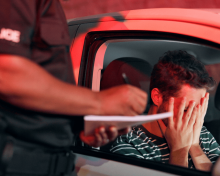
How Long Does a DUI Stay on Your Record: State-by-State Timeline
Record Duration Explained: How Long Does a DUI Stay on Your Record How long a DUI stays on your record depends on state law and the type of record involved. Some states retain drunk driving convictions for several years on driving records, while criminal records may reflect DUI convictions unless they are expunged or sealed. How Long Does a DUI Stay on Your Record How long does a DUI stay on your record is one of the most critical questions facing accused drivers. A DUI conviction creates both criminal and driving records that affect employment, insurance rates, and future legal consequences. The CDC reports that impaired driving costs the United States billions annually, underscoring why states maintain these records. Record duration varies significantly by state, depending on how long driving and criminal records are maintained. This guide explains DUI record timelines, expungement possibilities, and practical steps to minimize long-term impact. You’ll learn specific state differences, how BAC violations appear on background checks, and when professional DUI/DWI attorneys can help clear your record. State Laws Vary: How Long Does a DUI Stay on Your Record by Jurisdiction Understanding Different Record Types How long does a DUI stay on your record depends […]

How Much Are Most Personal Injury Settlements? Legal Settlement Guide
How Much Are Most Personal Injury Settlements Worth? How much are most personal injury settlements? Personal injury settlement amounts vary widely depending on the facts of the case, including injury severity, liability issues, and available insurance coverage. Understanding Settlement Values: How Much Are Most Personal Injury Settlements? Personal injury settlements compensate victims for damages caused by another party’s negligence. How much are most personal injury settlements actually worth? The answer depends on multiple factors including medical expenses, lost wages, pain and suffering, and liability strength. When accidents involve impaired driving, liability issues and legal considerations may differ from other cases. Understanding the factors that influence settlements can help individuals better evaluate their options during negotiations. Whether your injury stems from a car accident, slip and fall, or DUI-related collision, knowing typical settlement values empowers you to negotiate effectively with insurance companies and protect your legal rights. Case Value Factors: What Determines Personal Injury Settlement Amounts Medical Expenses and Treatment Costs Medical bills form the foundation of personal injury settlements. According to the National Center for Health Statistics, medical expenses may include emergency care, hospitalization, rehabilitation, and follow-up treatment, depending on the injury: Emergency medical treatment and hospitalization Ongoing physical therapy […]

What Is the Usual Result of a Settlement?
Settlement Outcomes Explained: What Is the Usual Result of a Settlement What is the usual result of a settlement varies depending on your specific legal situation, but settlements often involve a financial payment and a signed agreement intended to resolve the dispute. Understanding what to expect can help you make informed decisions during negotiations and prepare for the outcome. Settlement results typically involve monetary payment from one party to another, along with legal documentation that prevents future claims related to the same issue. This process allows both sides to avoid the uncertainty, time, and expense of going to trial. Common Settlement Types: Financial Compensation and Agreement Terms The usual result of a settlement most commonly includes direct financial compensation to the injured or affected party. This payment may address items such as medical expenses, lost income, or other documented claims, depending on the agreement. Personal injury settlement amounts vary widely depending on the facts of the case and the terms negotiated. Employment settlements may involve various negotiated terms, depending on the circumstances of the dispute. Business disputes frequently result in monetary damages plus agreements about future business relationships. Beyond money, what is the usual result of a settlement includes specific […]

How Long Does It Take for a Drunk Driving Case to Go to Court?
Timeline Expectations: How Long Does It Take for a Drunk Driving Case to Go to Court How long it takes for a drunk driving case to go to court can vary widely depending on jurisdiction, case complexity, and court schedules. Understanding this timeline helps you prepare mentally and financially for the legal process ahead. Most drunk driving cases follow a predictable schedule from arrest to final resolution. Some first-offense DUI cases may move through the court system more quickly, while cases involving additional factors can take longer to reach resolution. Your case timeline also depends on whether you choose to fight the charges or accept a plea agreement. Plea negotiations may resolve some cases earlier in the process, while cases that proceed to trial often take additional time. Court Process Breakdown: Understanding DUI Case Phases How long does it take for a drunk driving case to go to court depends heavily on which phase your case is currently in. The process typically includes arraignment, pre-trial motions, discovery, plea negotiations, and potentially trial. Arraignment often occurs relatively early in the court process, depending on scheduling and local procedures. This first court appearance involves entering your initial plea and scheduling future court […]

Understanding the DUI Court Process and Outcomes | Your Complete Legal Roadmap
Legal Basics: DUI Court Process and Outcomes Explained Legal Basics: The DUI court process and outcomes can feel overwhelming when you’re facing drunk driving charges for the first time. Understanding each step of the legal proceedings helps you prepare for what lies ahead and make informed decisions about your case. This comprehensive guide walks you through every stage of the DUI court process, from initial arrest to final sentencing, while explaining the potential outcomes you might face. DUI court proceedings encompass both criminal court hearings and administrative actions through the Department of Motor Vehicles (DMV). The typical timeline spans 3-6 months for most cases, though complex situations may extend longer. With approximately 1.5 million DUI arrests occurring annually in the United States, these cases represent a significant portion of the criminal justice system. Legal representation proves crucial during this process, as DUI laws involve intricate regulations, evidence rules, and potential defenses that require professional expertise. The stakes are high, with consequences including license suspension, fines, jail time, and long-term impacts on your personal and professional life. Step-by-Step: Initial DUI Court Proceedings Step-by-Step: After a DUI arrest, your first court appearance marks the beginning of formal legal proceedings. Understanding what happens […]
